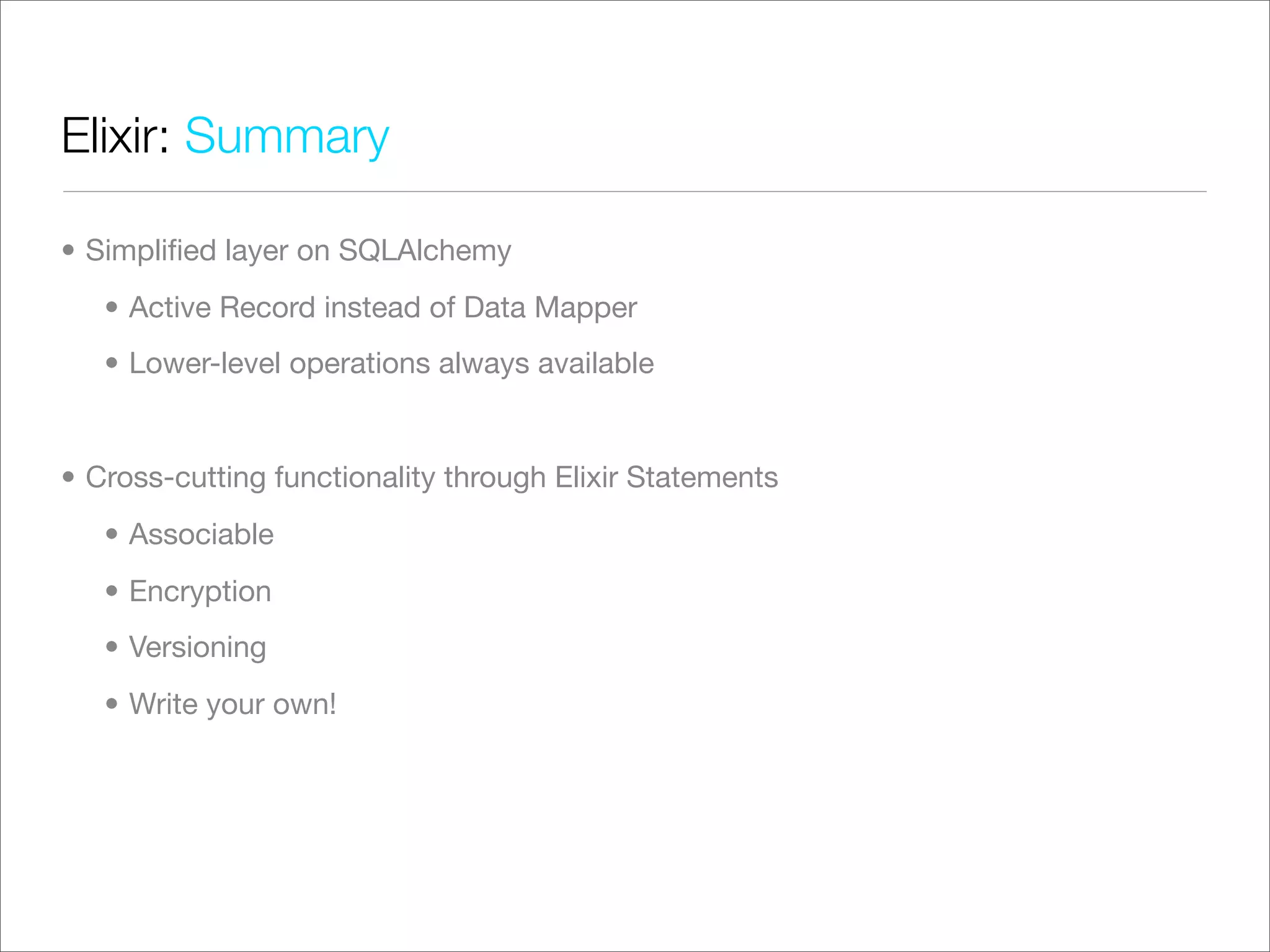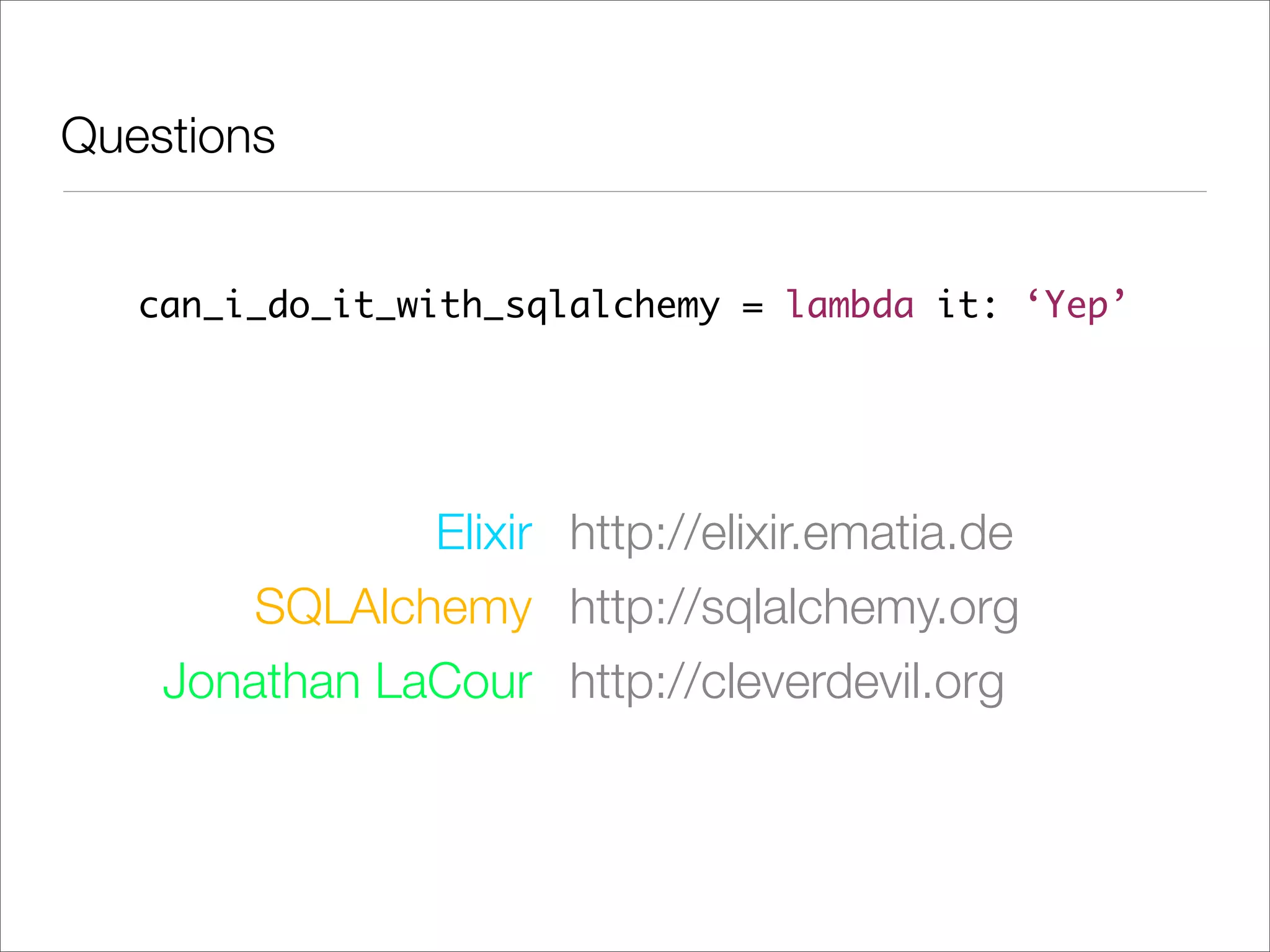This document provides an overview of SQLAlchemy and Elixir. SQLAlchemy is a Python SQL toolkit and ORM that provides full SQL power and flexibility. Elixir is a declarative layer on top of SQLAlchemy that follows the active record pattern, allowing model objects to be defined in a single step using a DSL syntax. The document covers SQLAlchemy concepts like engines, metadata, tables, mappers, sessions and queries. It provides an example weblog application using SQLAlchemy. It then covers Elixir concepts and shows how the same example can be written more concisely using Elixir. The document discusses additional Elixir features like events, encryption, versioning and associations.
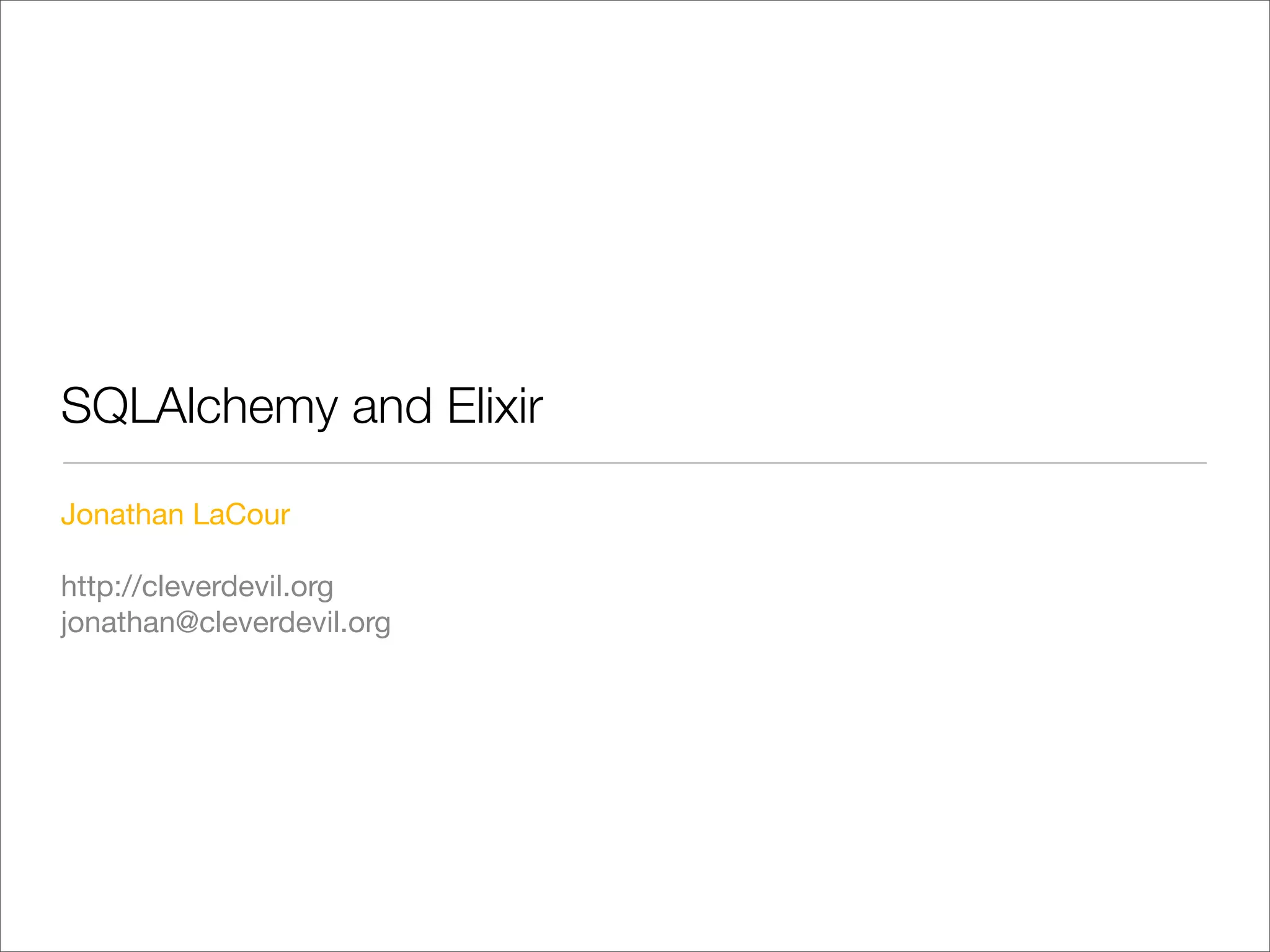
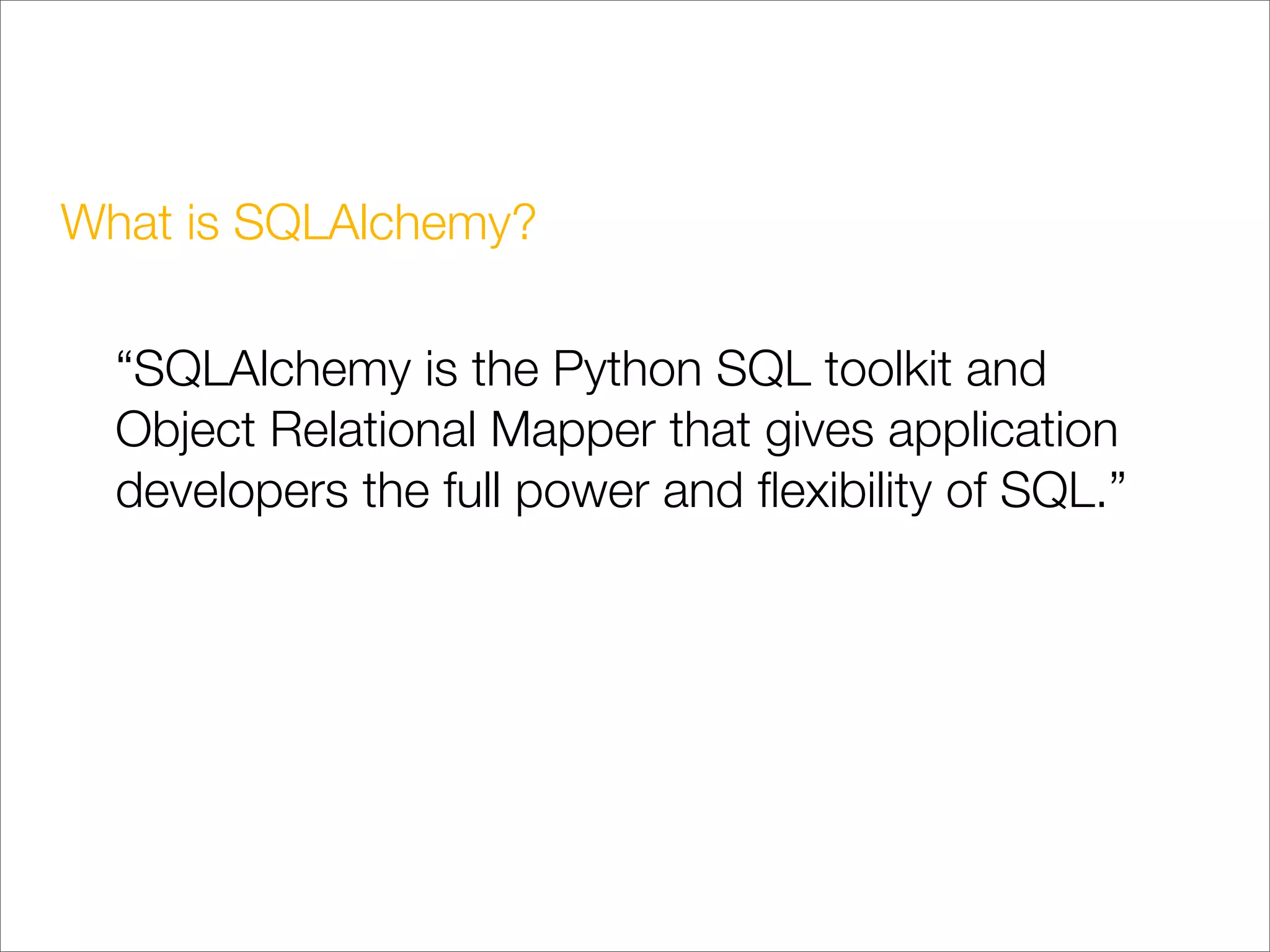
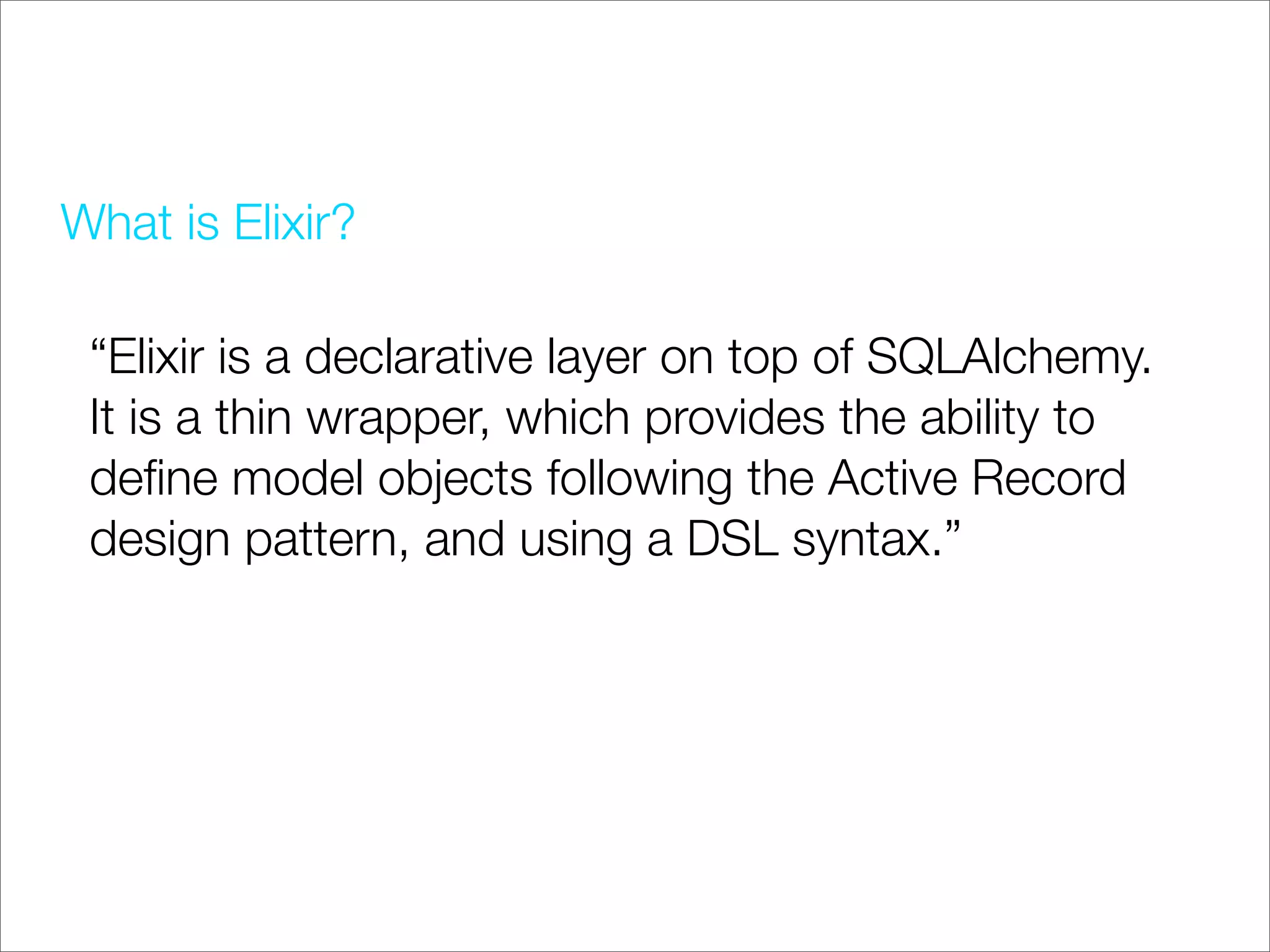
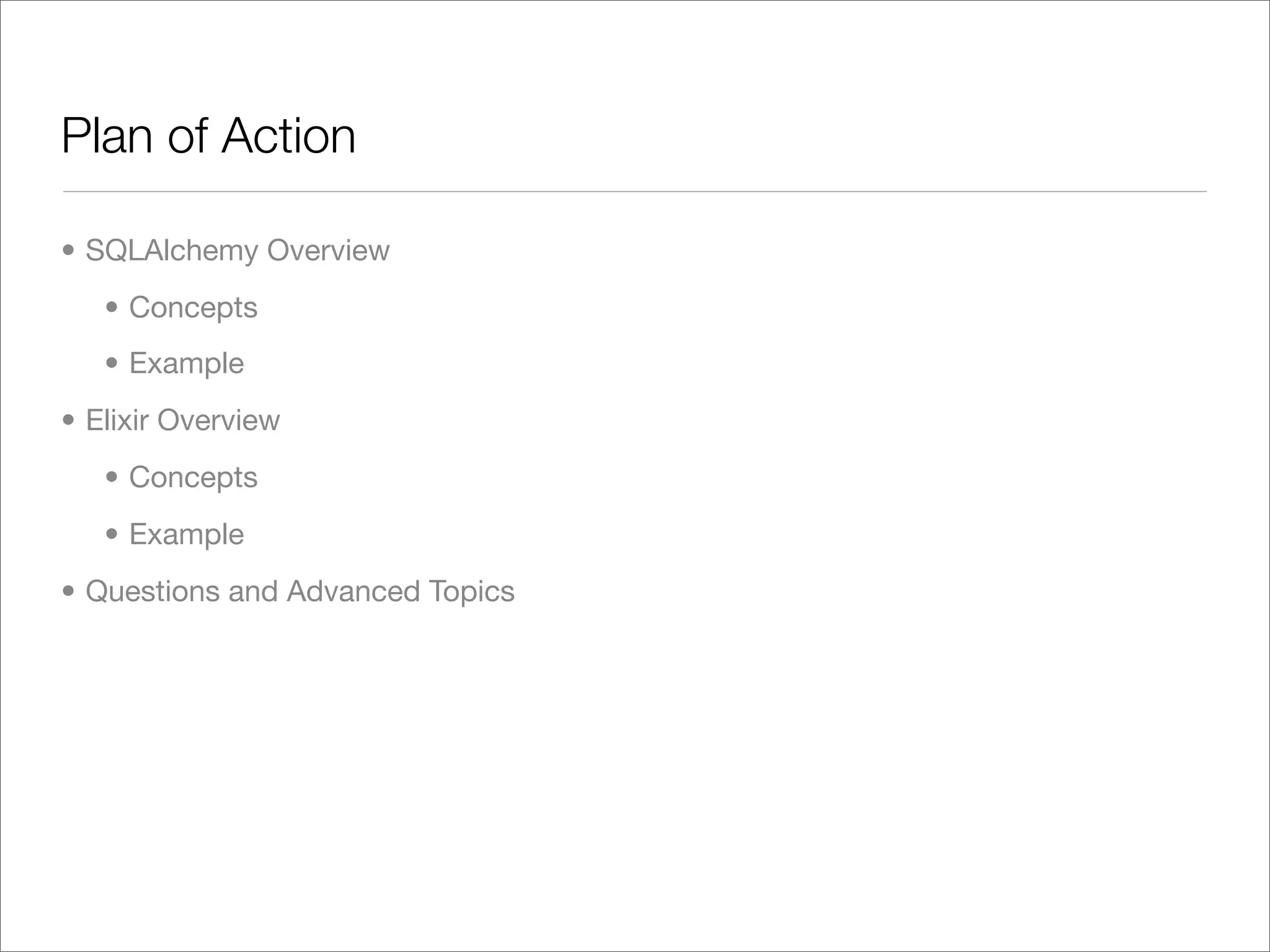
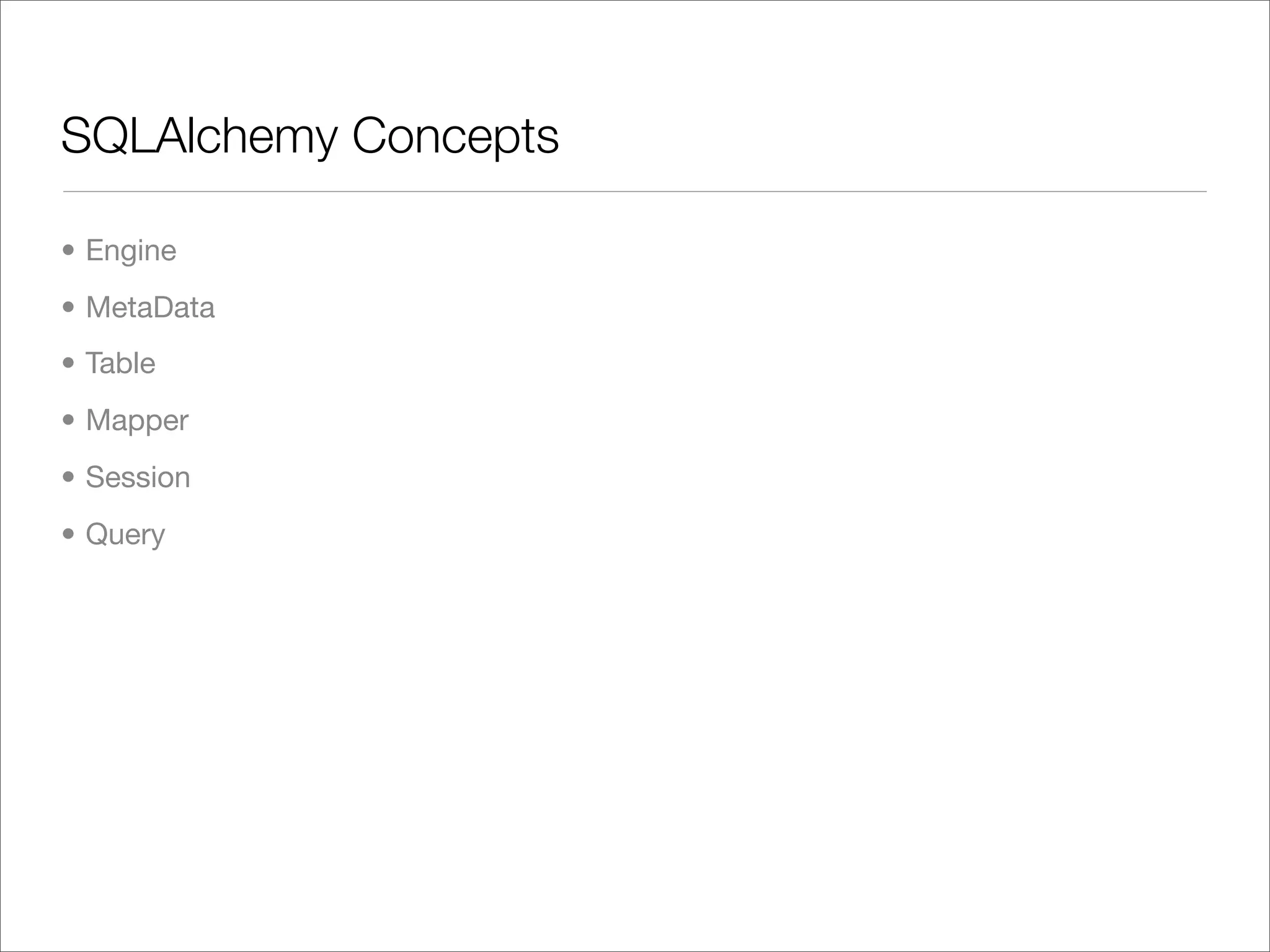
![SQLAlchemy Concepts: Engine
• Connection handling and pooling.
• Defines the “dialect” for database-specific translation.
• PostgreSQL, MySQL, Oracle, MS-SQL, Firebird, Informix, SQLite.
# create an engine
engine = create_engine('postgres://user:pass@host/database')
# perform a query
connection = engine.connect()
result = connection.execute('select * from users')
for row in result:
print row['username'], row['email']
# close the connection
connection.close()](https://image.slidesharecdn.com/slidespythonelixir-121110092237-phpapp02/75/Slides-python-elixir-6-2048.jpg)
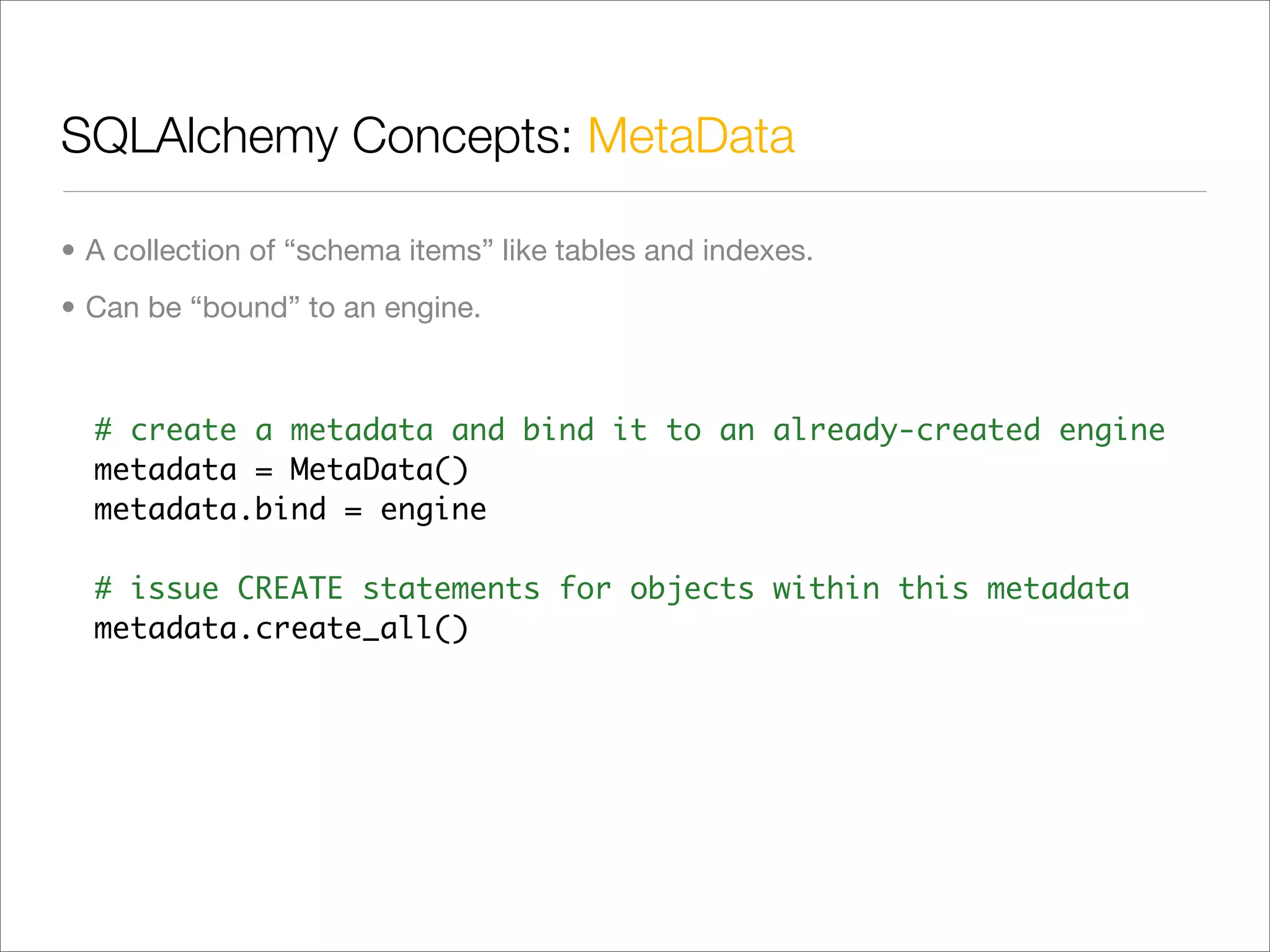
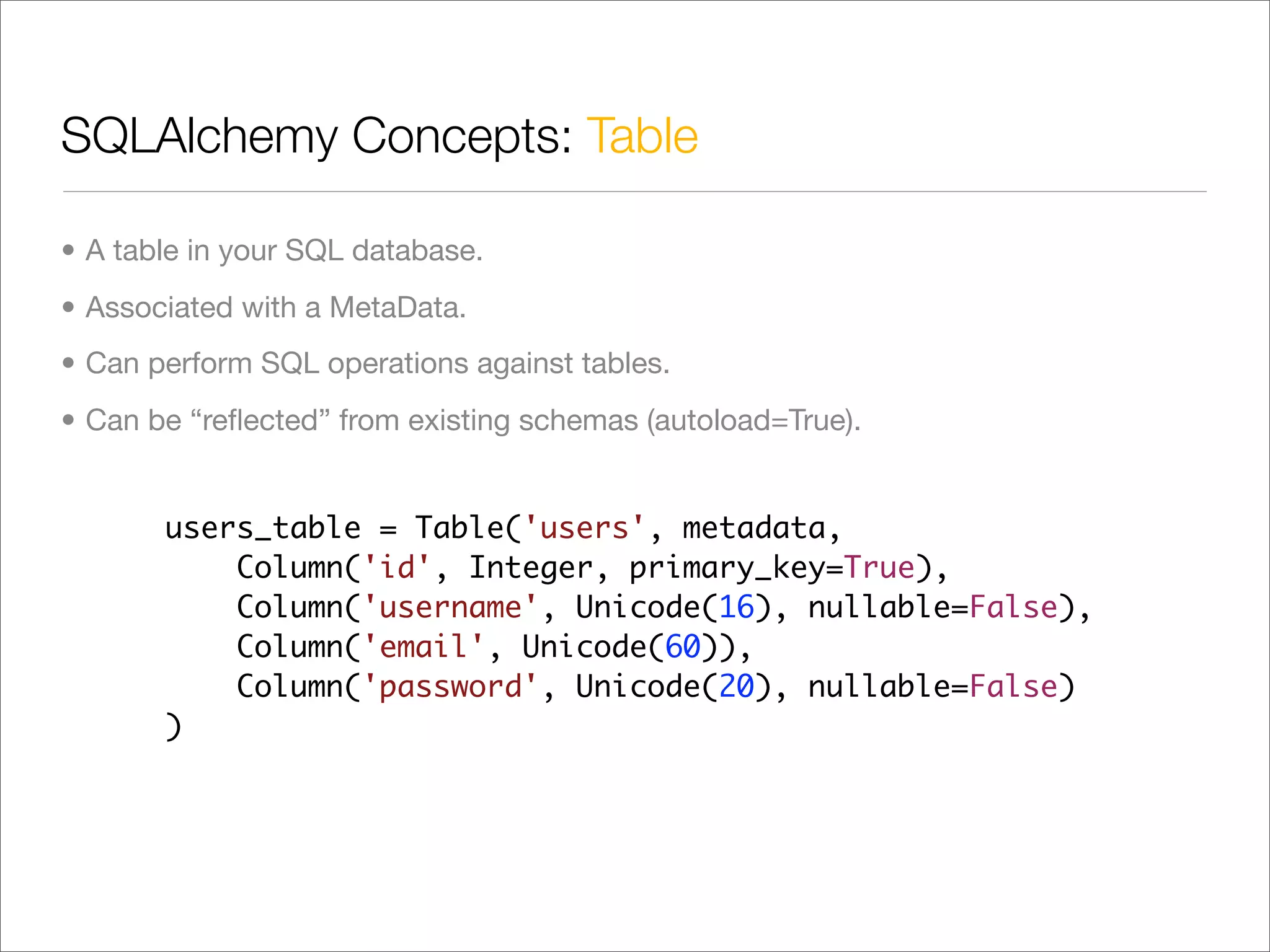
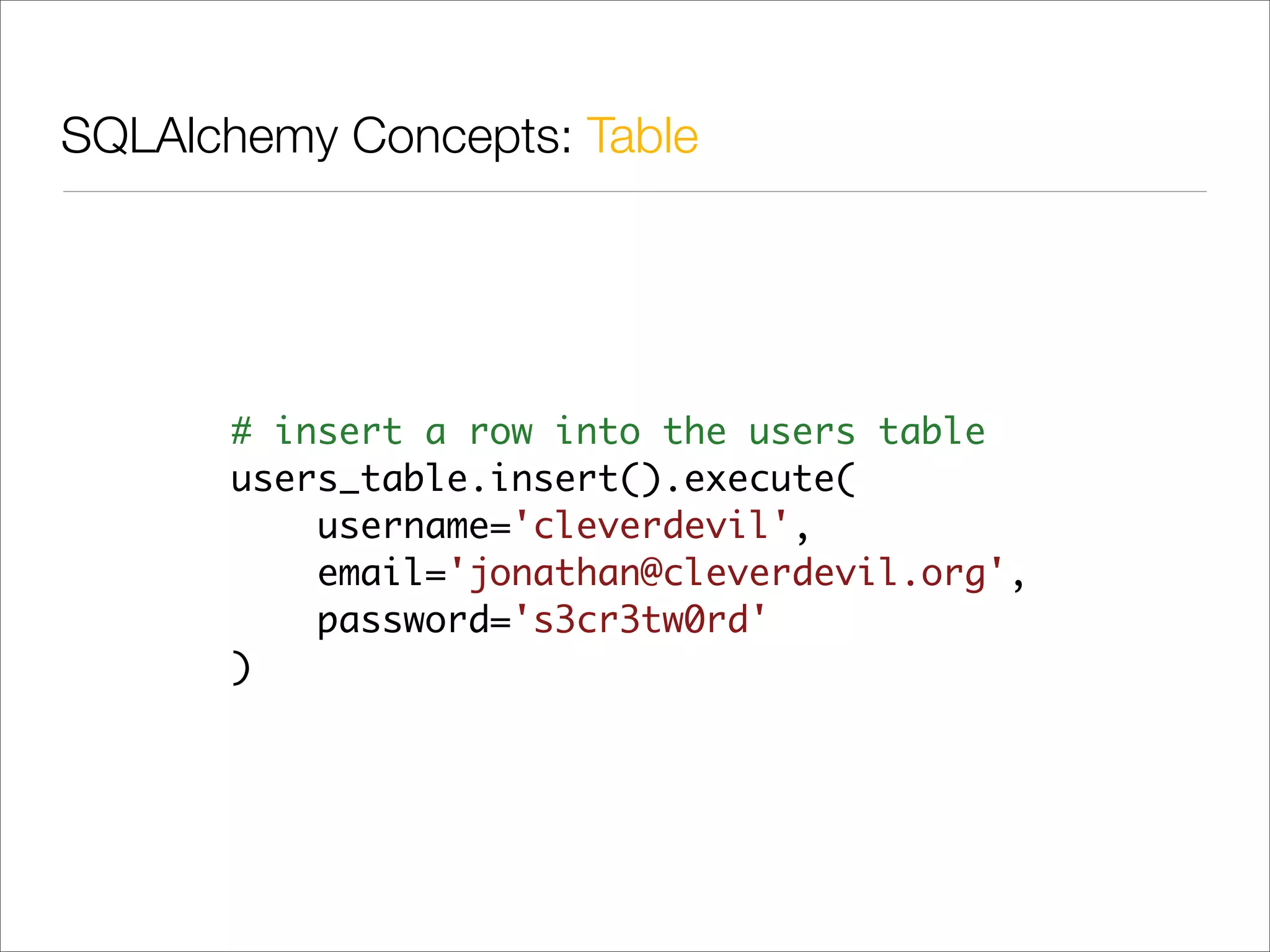
![SQLAlchemy Concepts: Table
# select all rows from the users table
rows = users_table.select().execute()
for row in rows:
print row['username'], row['email']
# select certain rows from the users table
clever_not_devil_rows = users_table.select(
and_(users_table.c.username.like('%clever%'),
not_(users_table.c.username.like('%devil%')))
).execute()](https://image.slidesharecdn.com/slidespythonelixir-121110092237-phpapp02/75/Slides-python-elixir-10-2048.jpg)
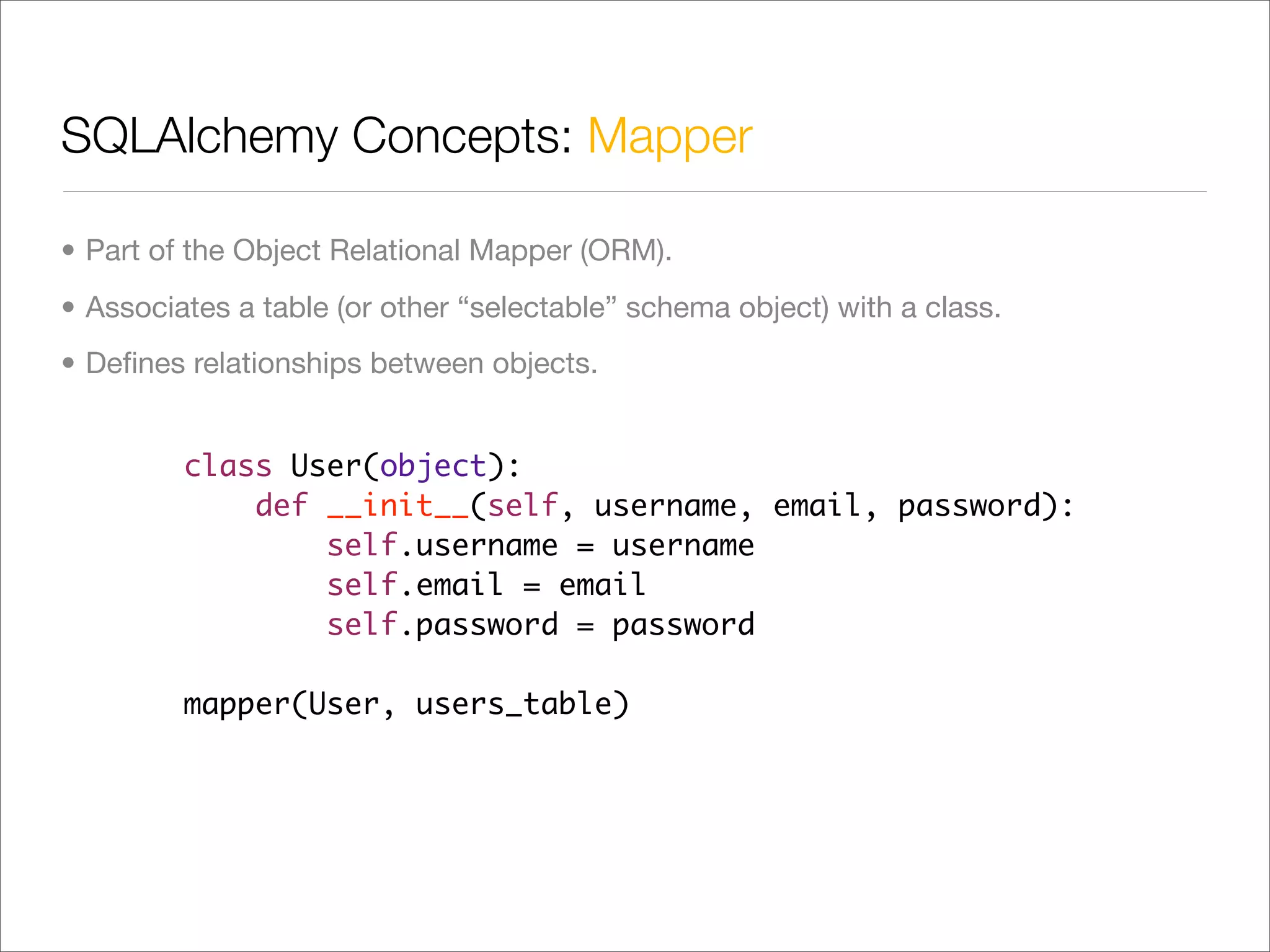
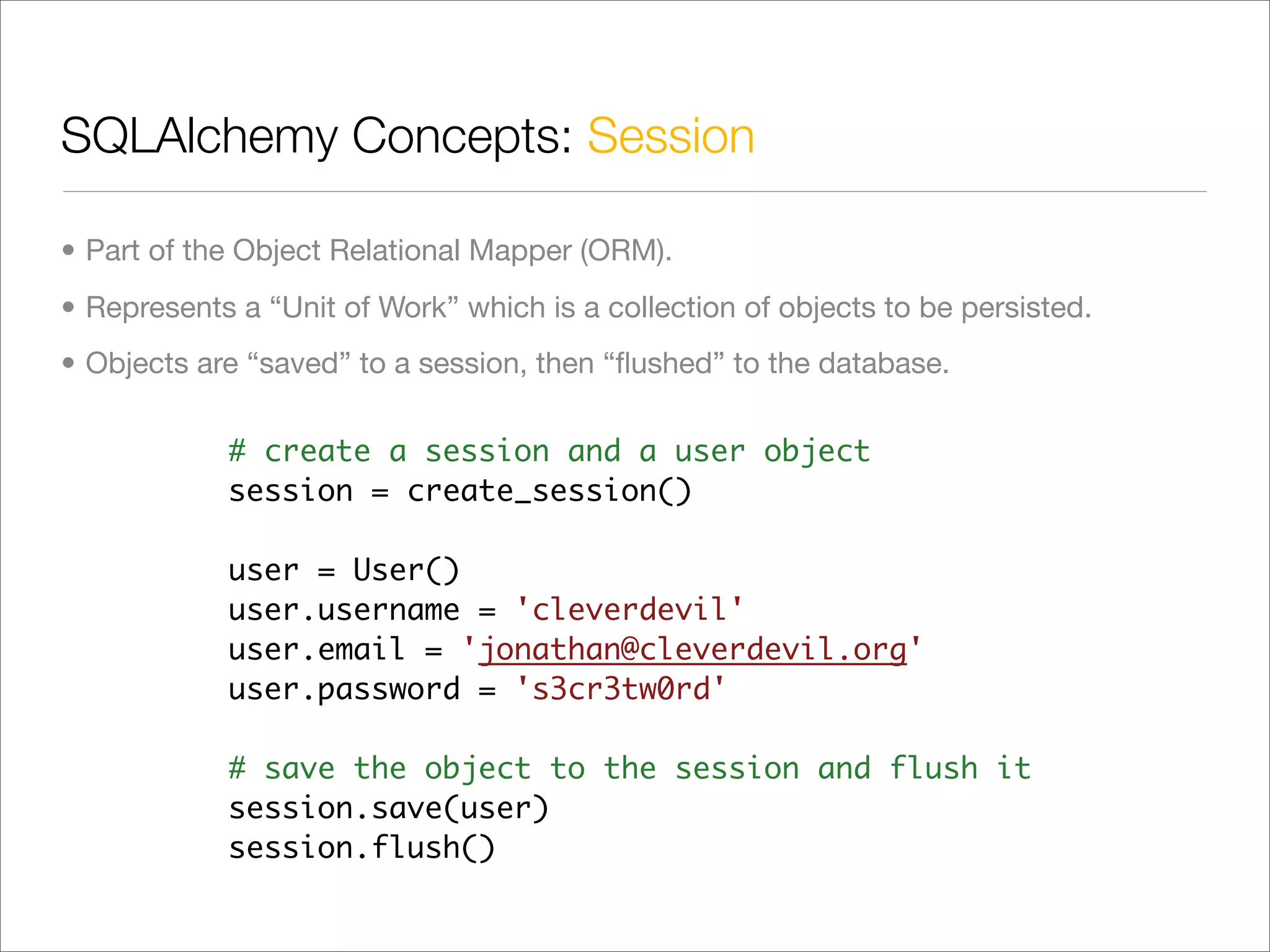
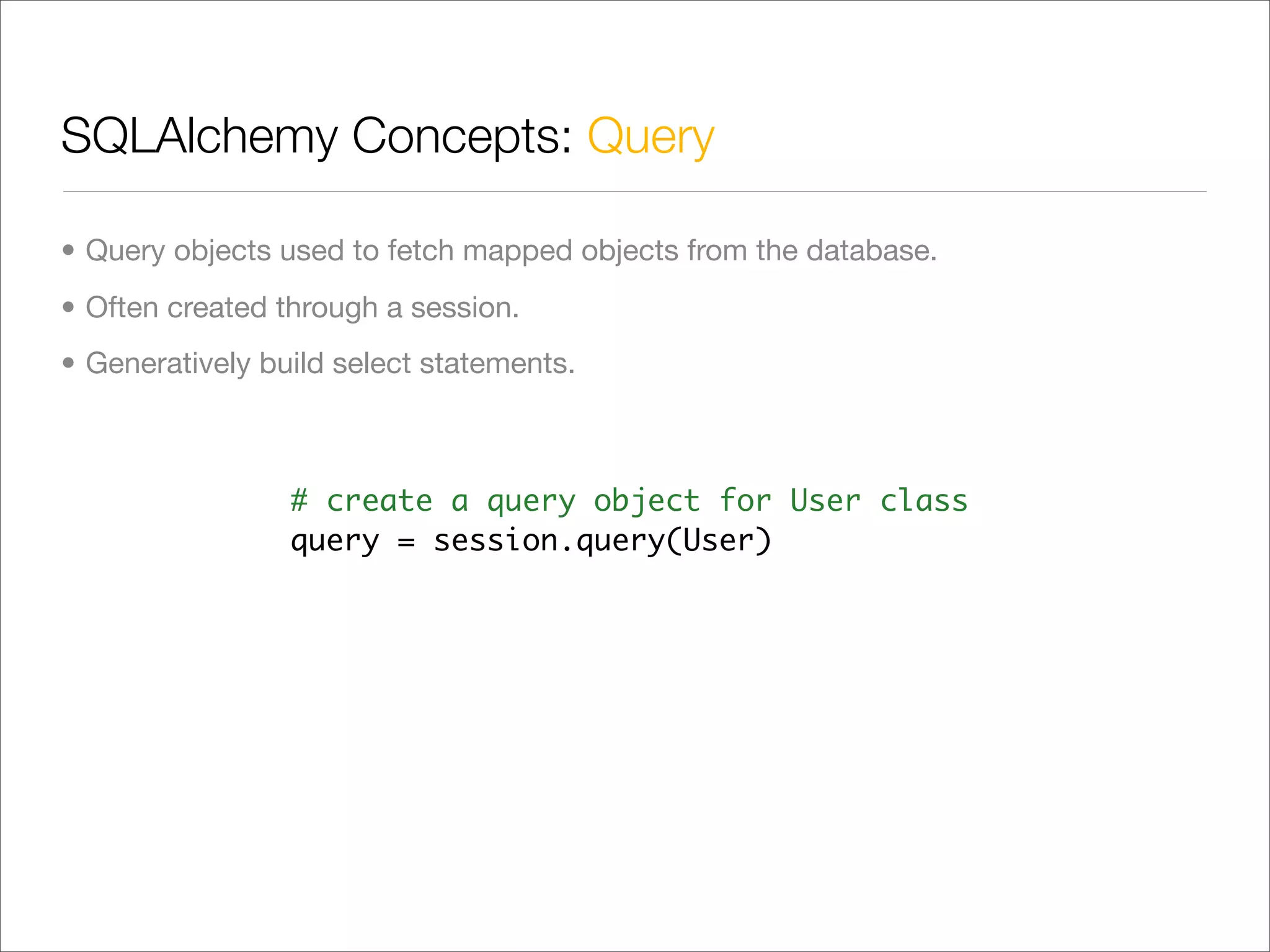
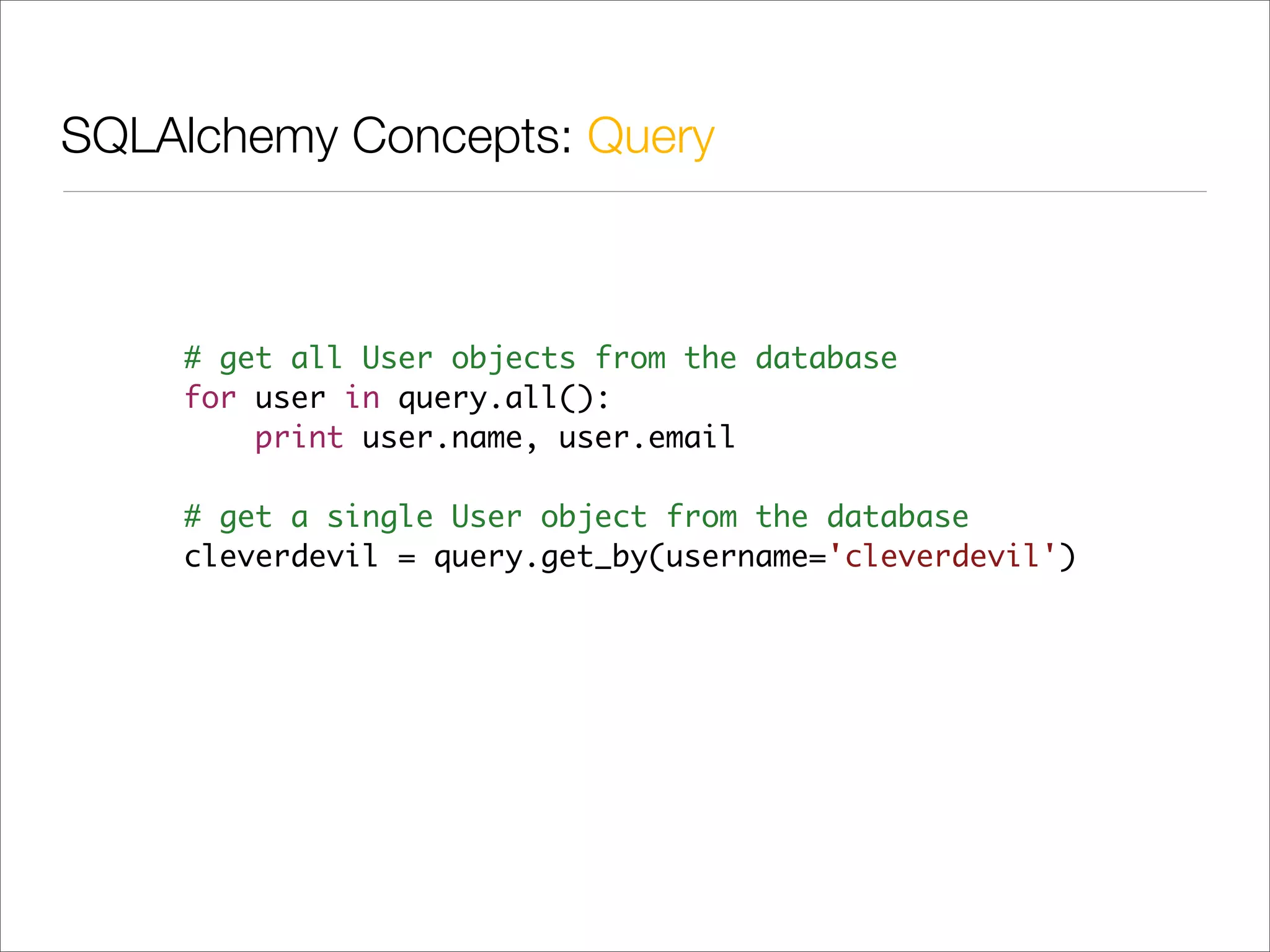
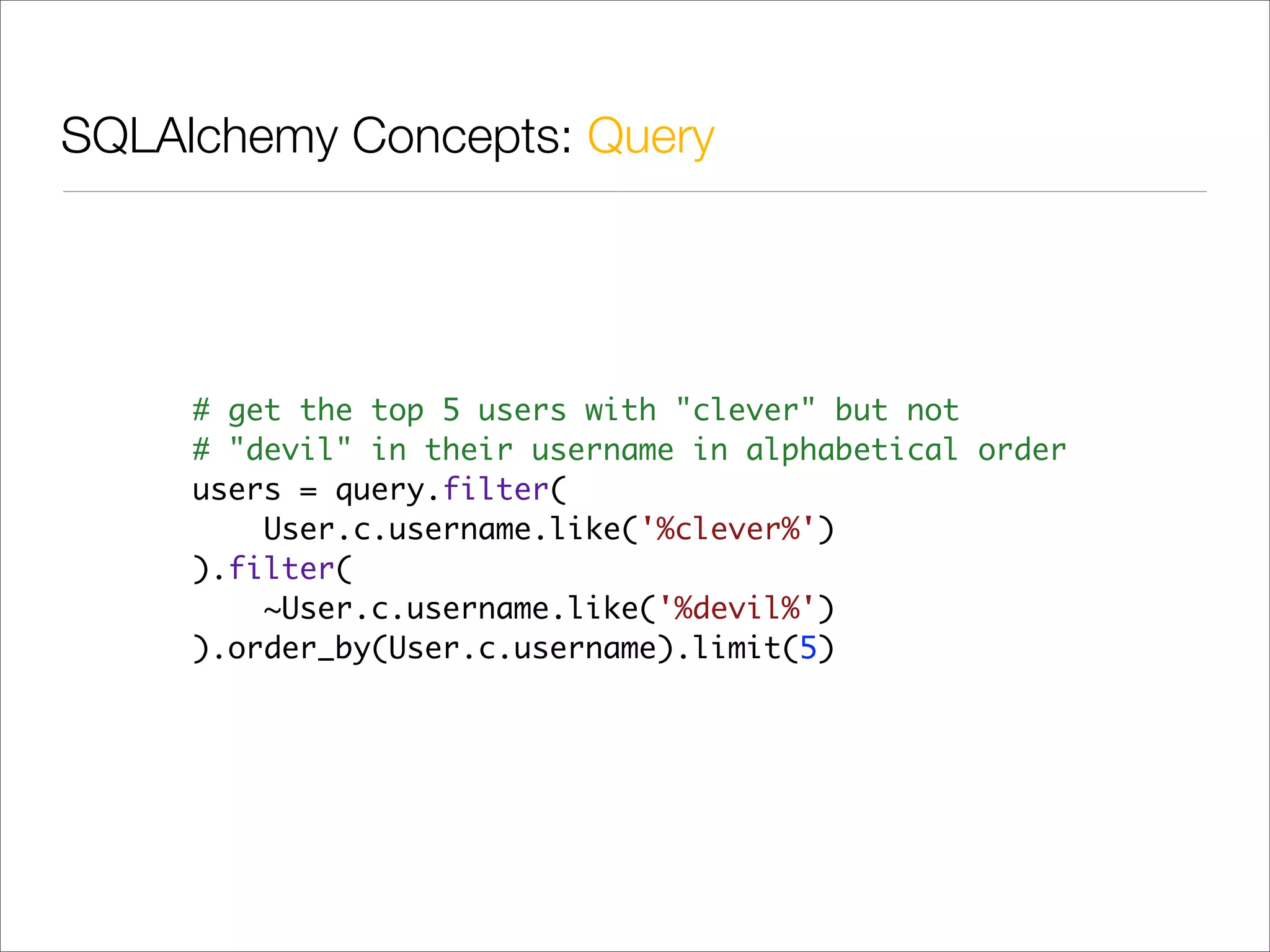
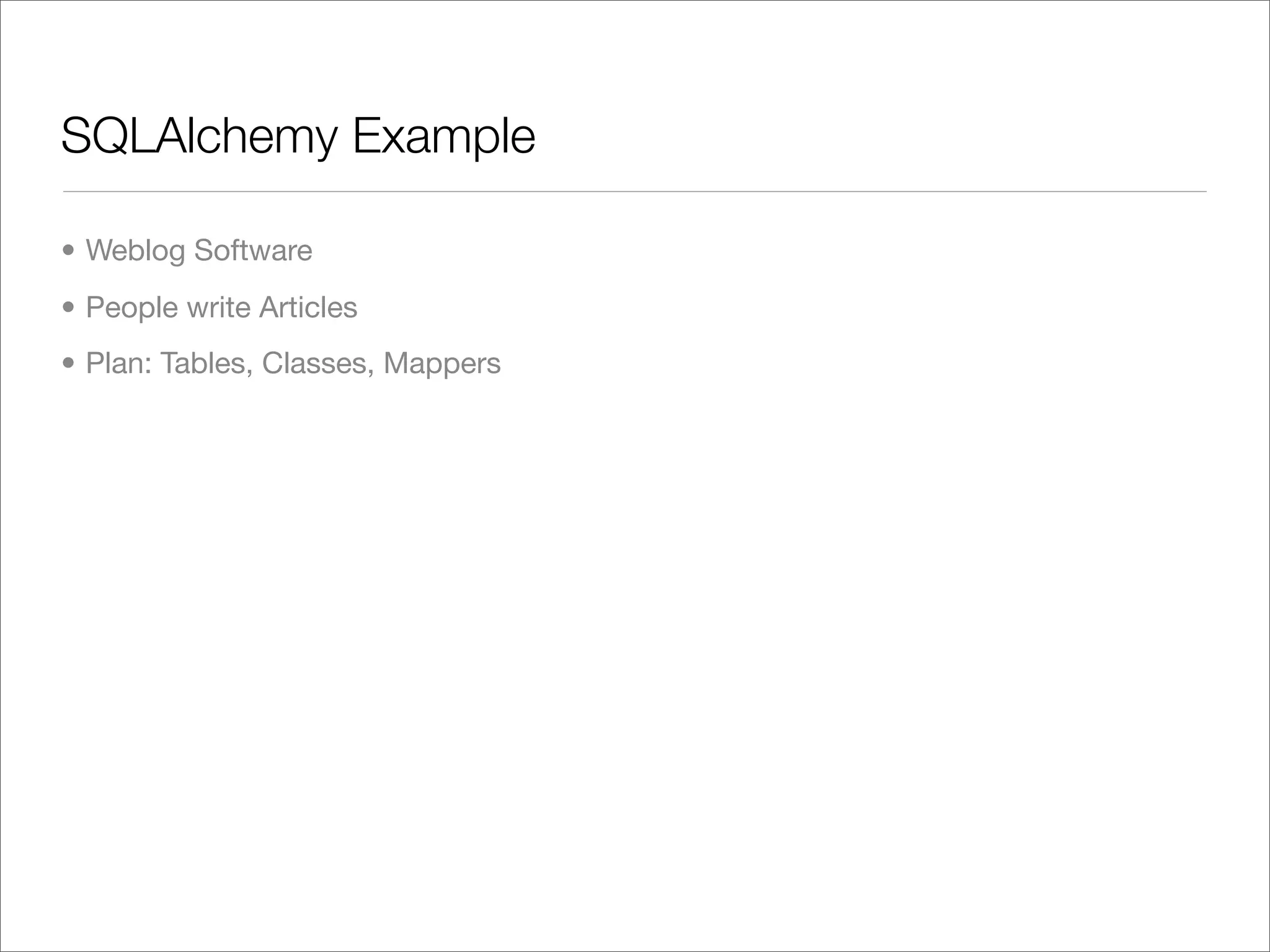
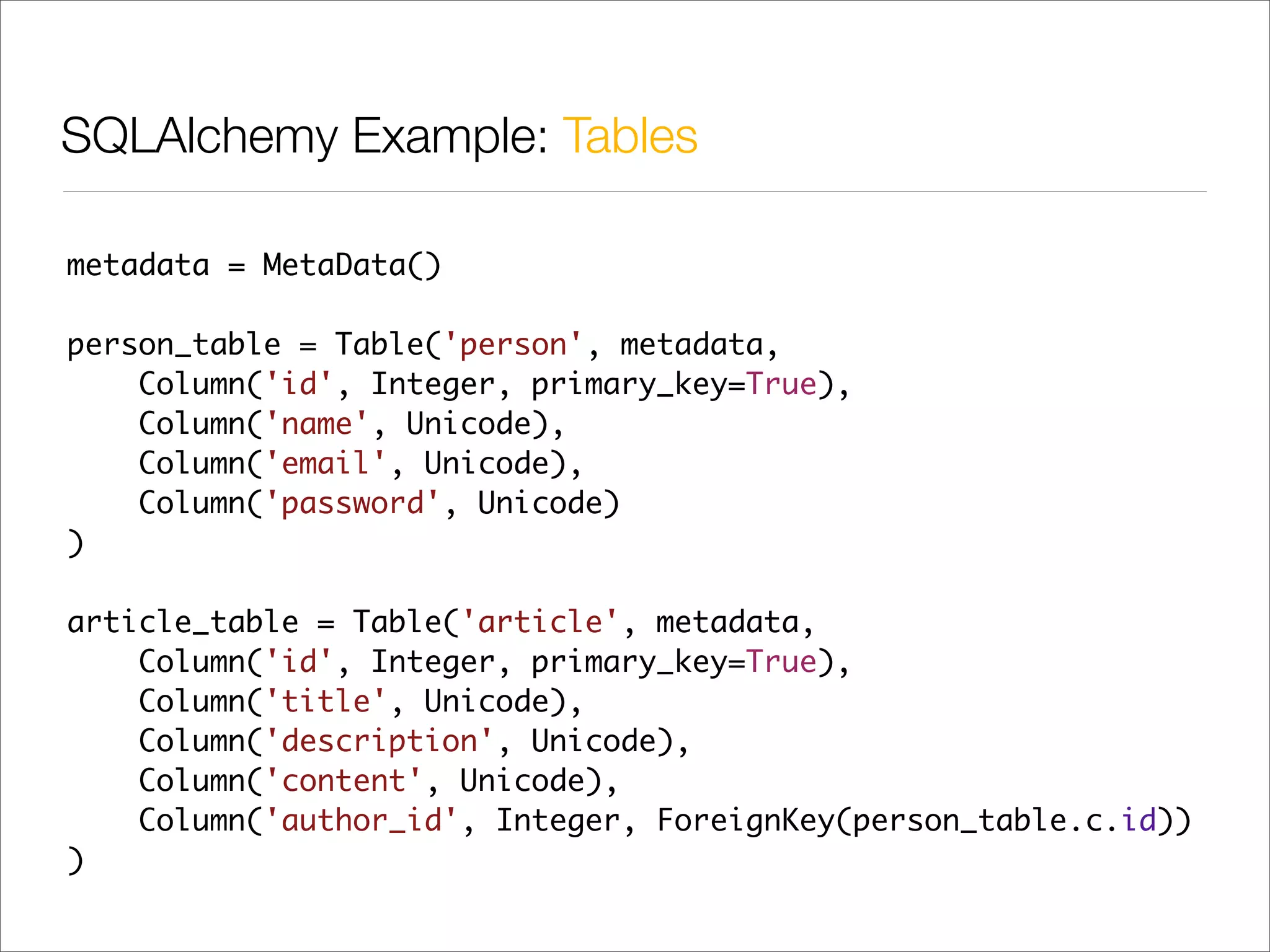
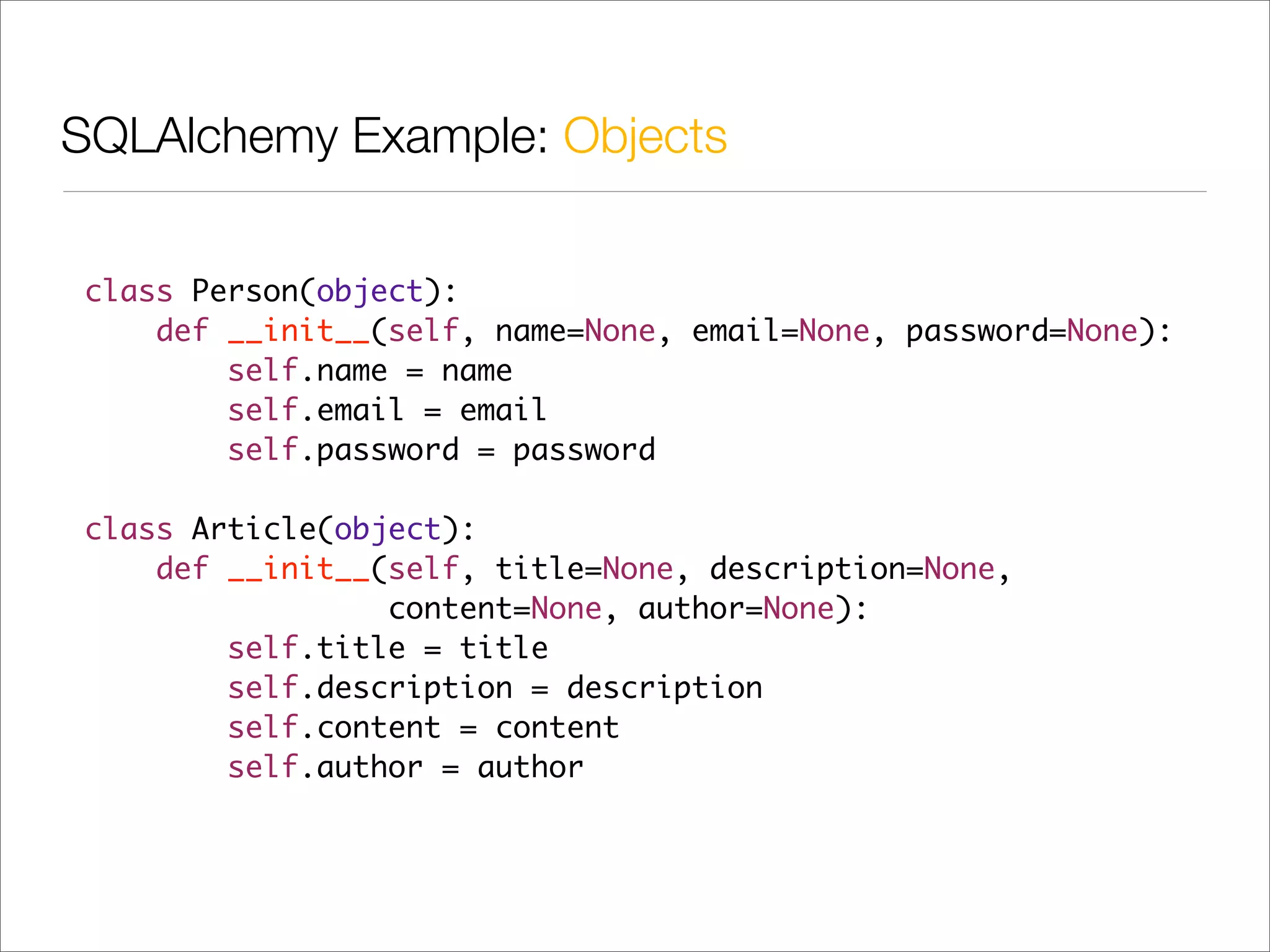
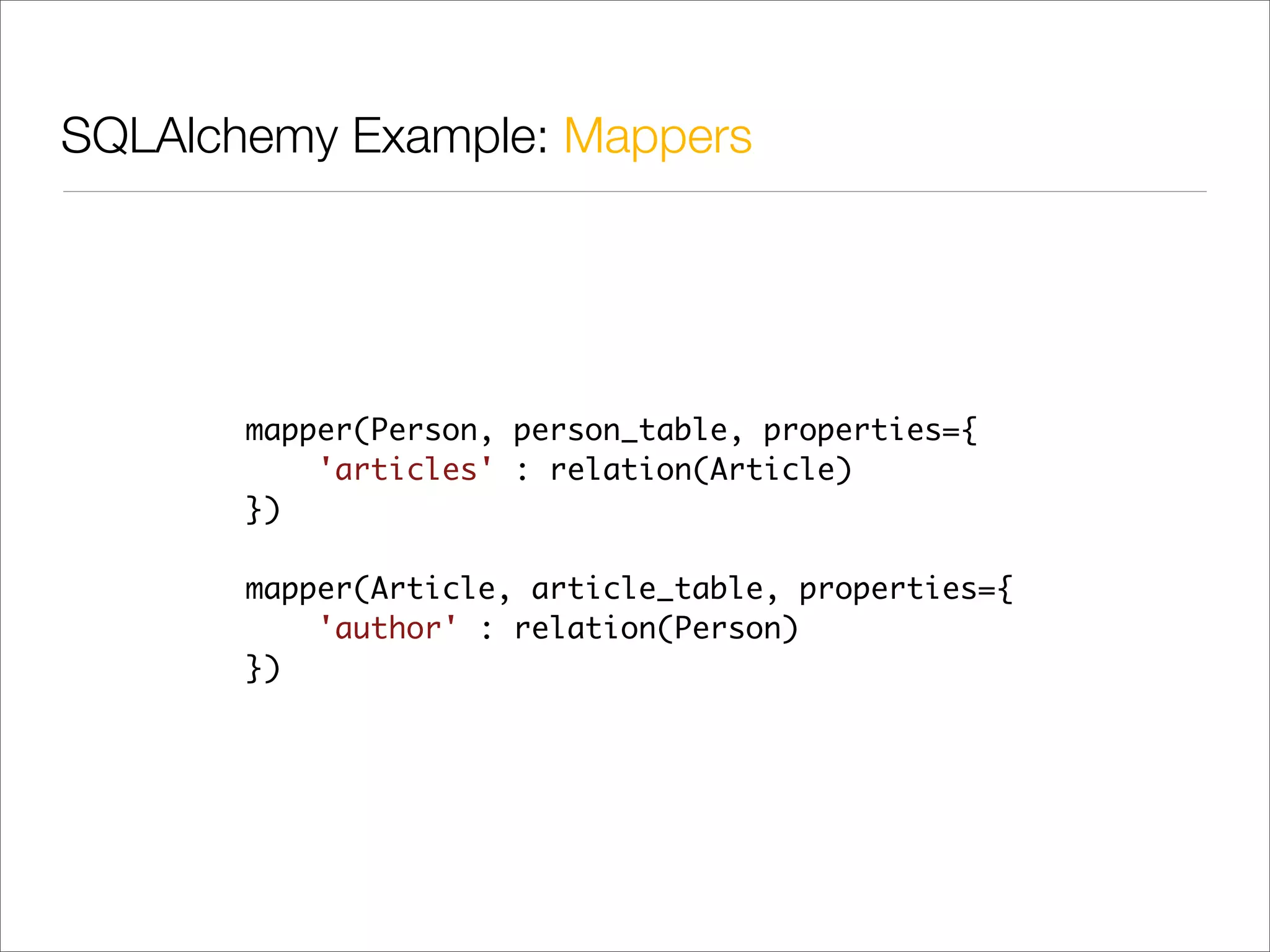
![SQLAlchemy Example: Demonstration
# bind our metadata to an in-memory # create a session and save the post, which
# sqlite database, and create tables # will also save the dependant Person object
metadata.bind = 'sqlite:///' session = create_session()
metadata.create_all() session.save(blog_post)
session.flush()
# create a Person instance
jonathan = Person( # create another session and use it to query
name='Jonathan' # for our just created instance
email='jonathan@cleverdevil.org' session = create_session()
password='s3cr3t' query = session.query(Person)
) jonathan = query.get_by(name='Jonathan')
create an Article instance # walk through the object, printing out some
blog_post = Article( # properties, including related objects
title='Some Blog Post', print jonathan.name
description='Some description', print jonathan.articles[0].title
content=Some content, print jonathan.articles[0].author.name
author=jonathan
)](https://image.slidesharecdn.com/slidespythonelixir-121110092237-phpapp02/75/Slides-python-elixir-20-2048.jpg)
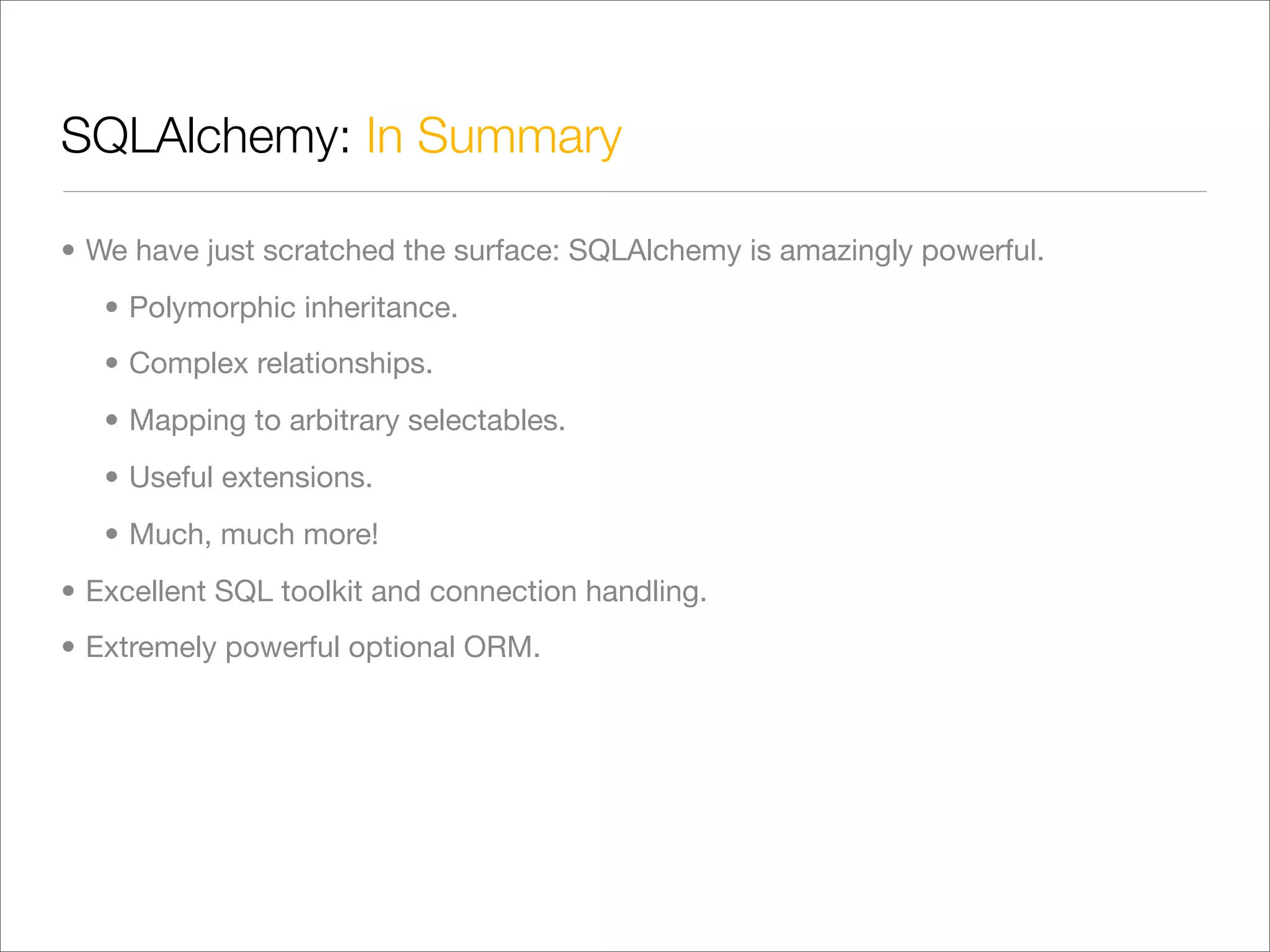
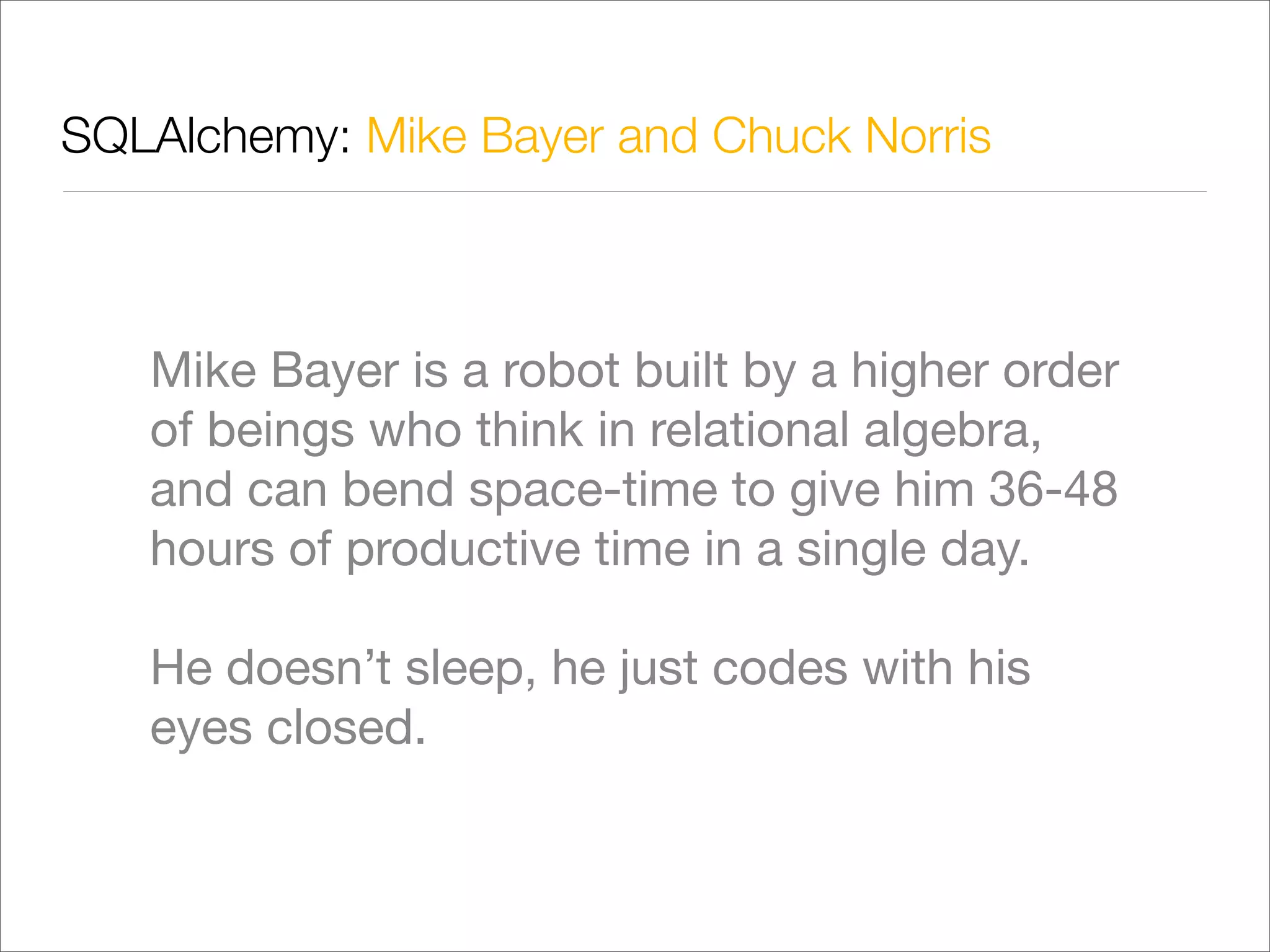
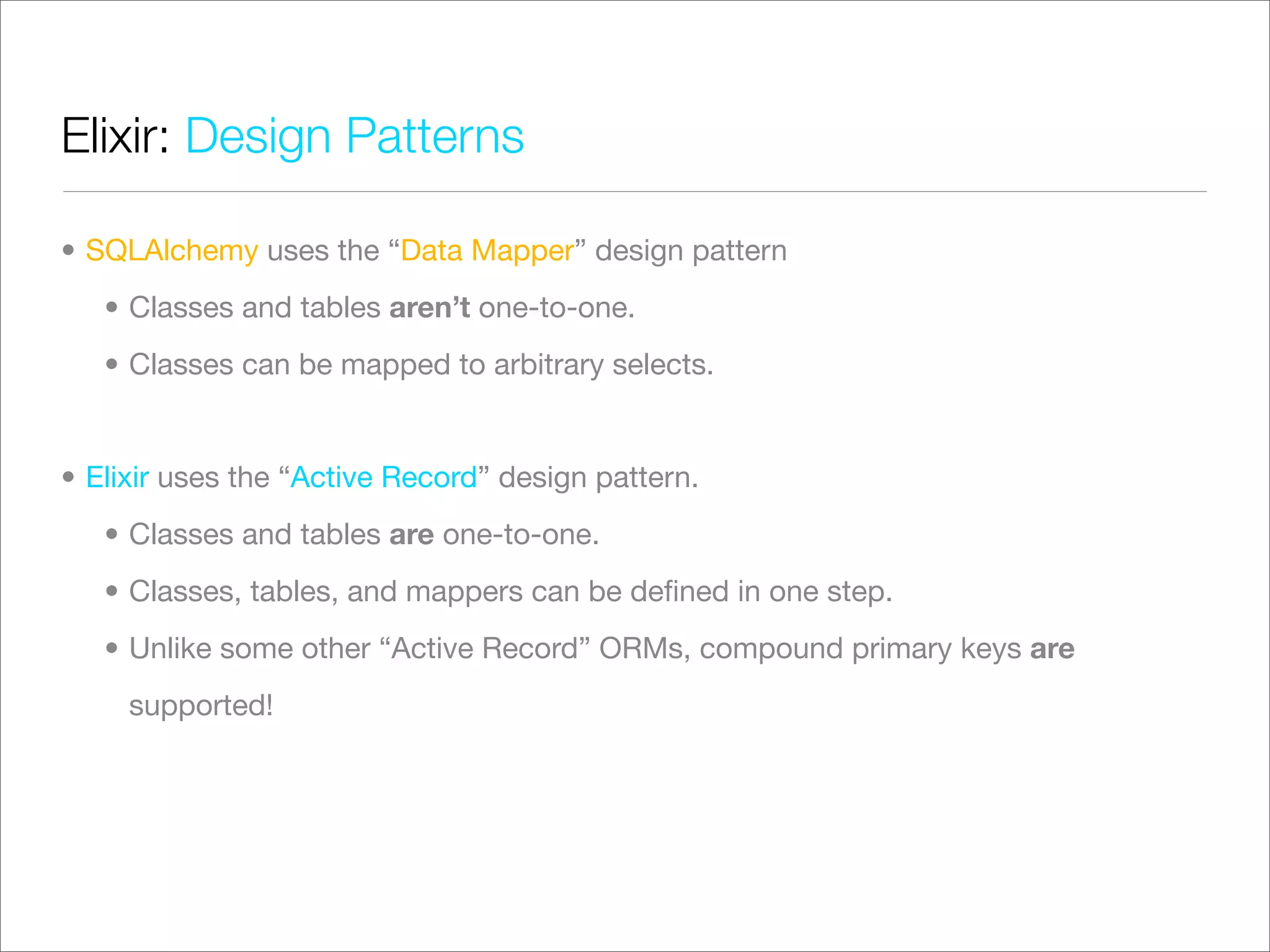
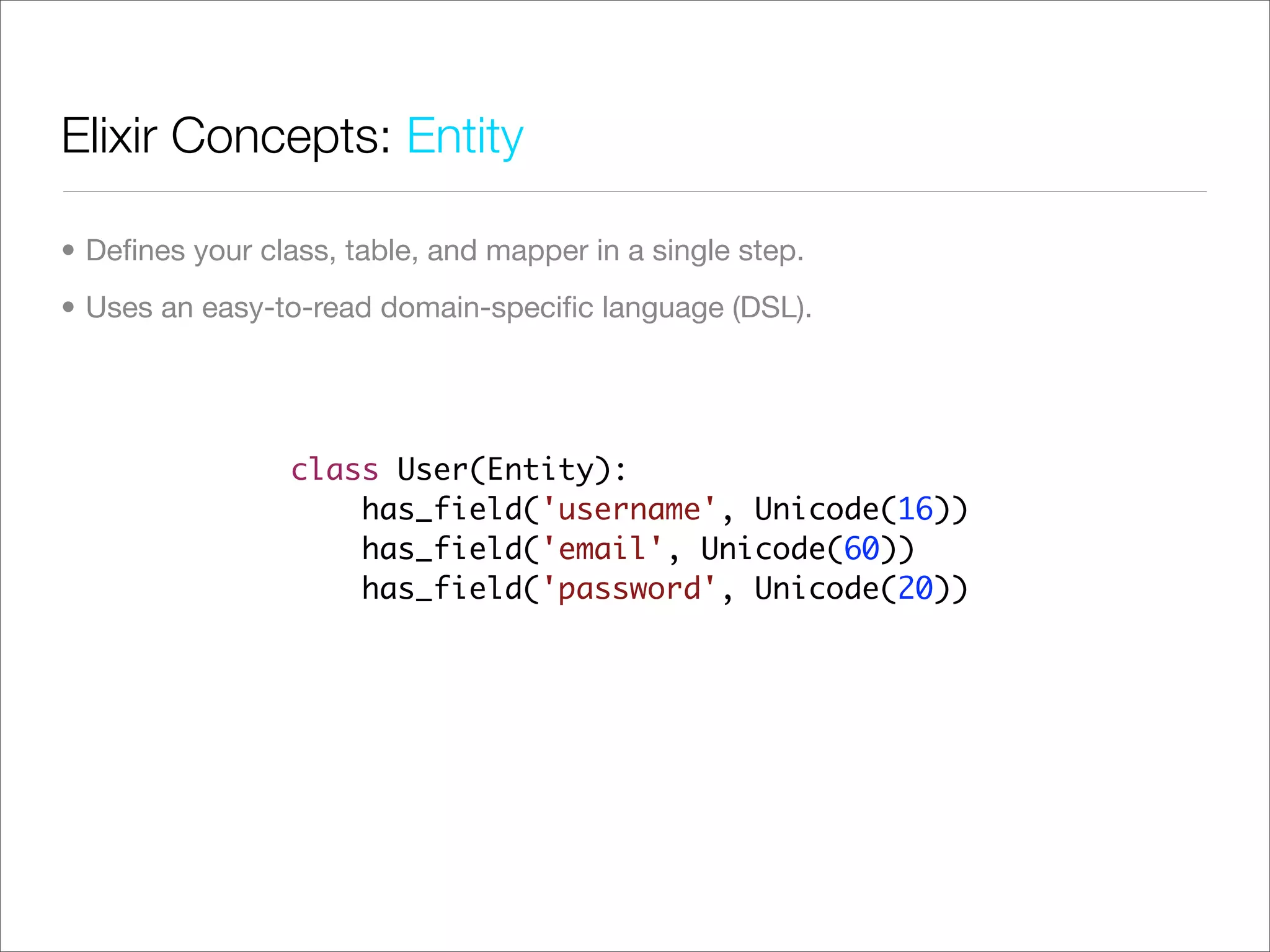
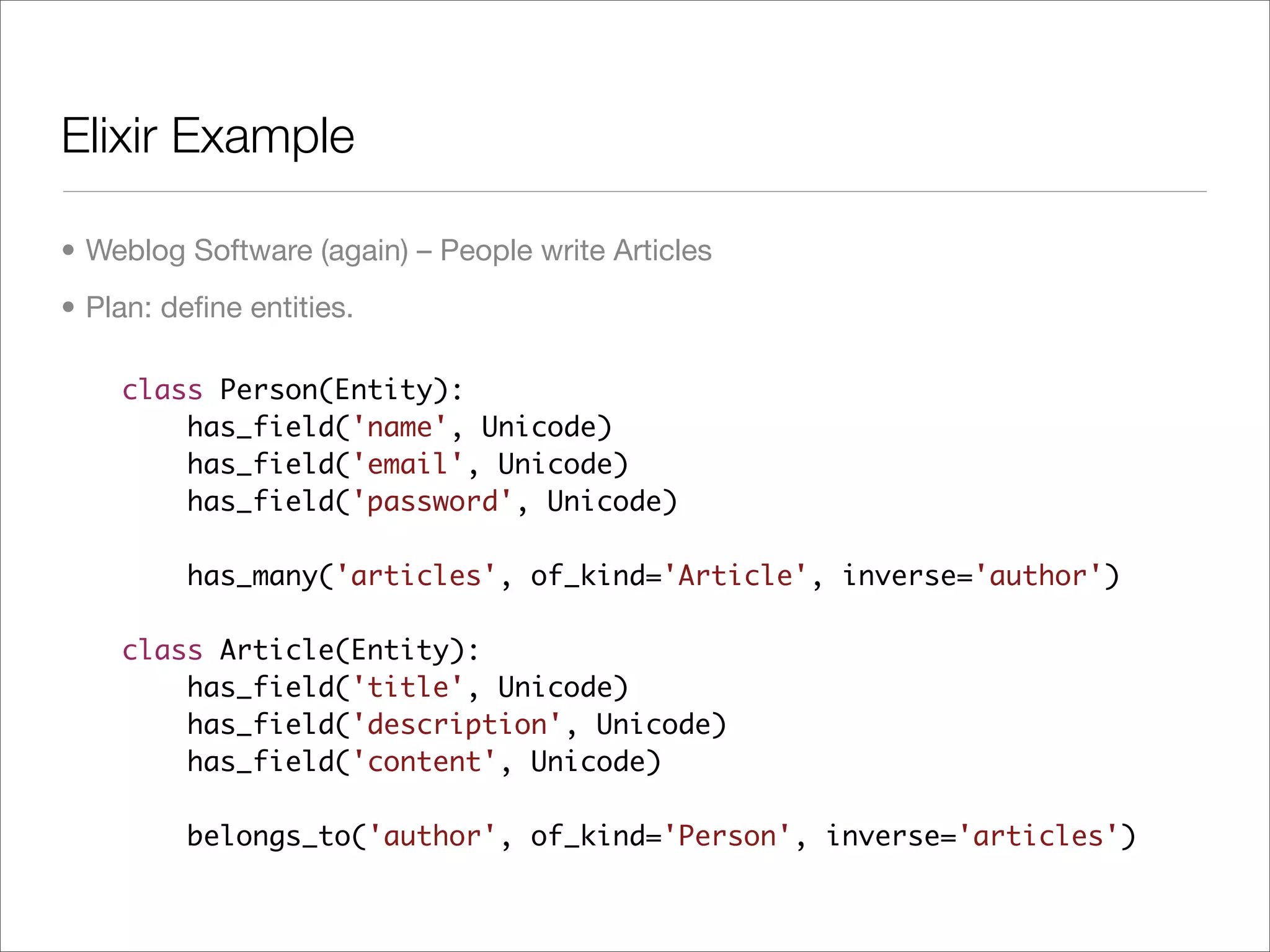
![Elixir Example: Demonstration
# bind our metadata to an in-memory # elixir automatically creates a threadlocal
# sqlite database, and create tables # session for you using “SessionContext”
metadata.bind = 'sqlite:///' objectstore.flush(); objectstore.clear()
metadata.create_all()
# elixir provides a convenience function for
# create a Person instance # getting query objects
jonathan = Person( query = Person.query()
name='Jonathan' jonathan = query.get_by(name='Jonathan')
email='jonathan@cleverdevil.org'
password='s3cr3t' # walk through the object, printing out some
) # properties, including related objects
print jonathan.name
create an Article instance print jonathan.articles[0].title
blog_post = Article( print jonathan.articles[0].author.name
title='Some Blog Post',
description='Some description',
content=Some content,
author=jonathan
)](https://image.slidesharecdn.com/slidespythonelixir-121110092237-phpapp02/75/Slides-python-elixir-26-2048.jpg)
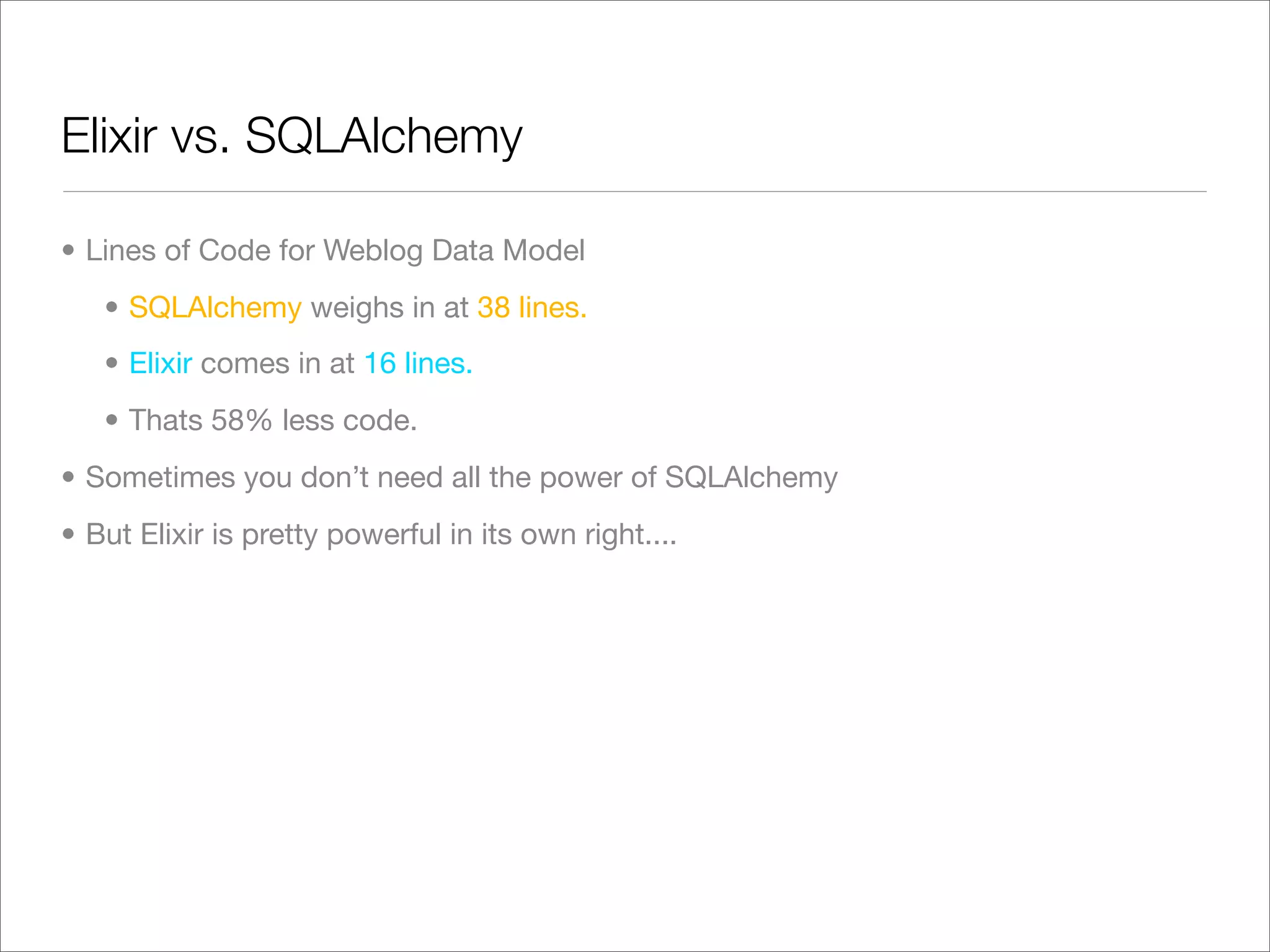
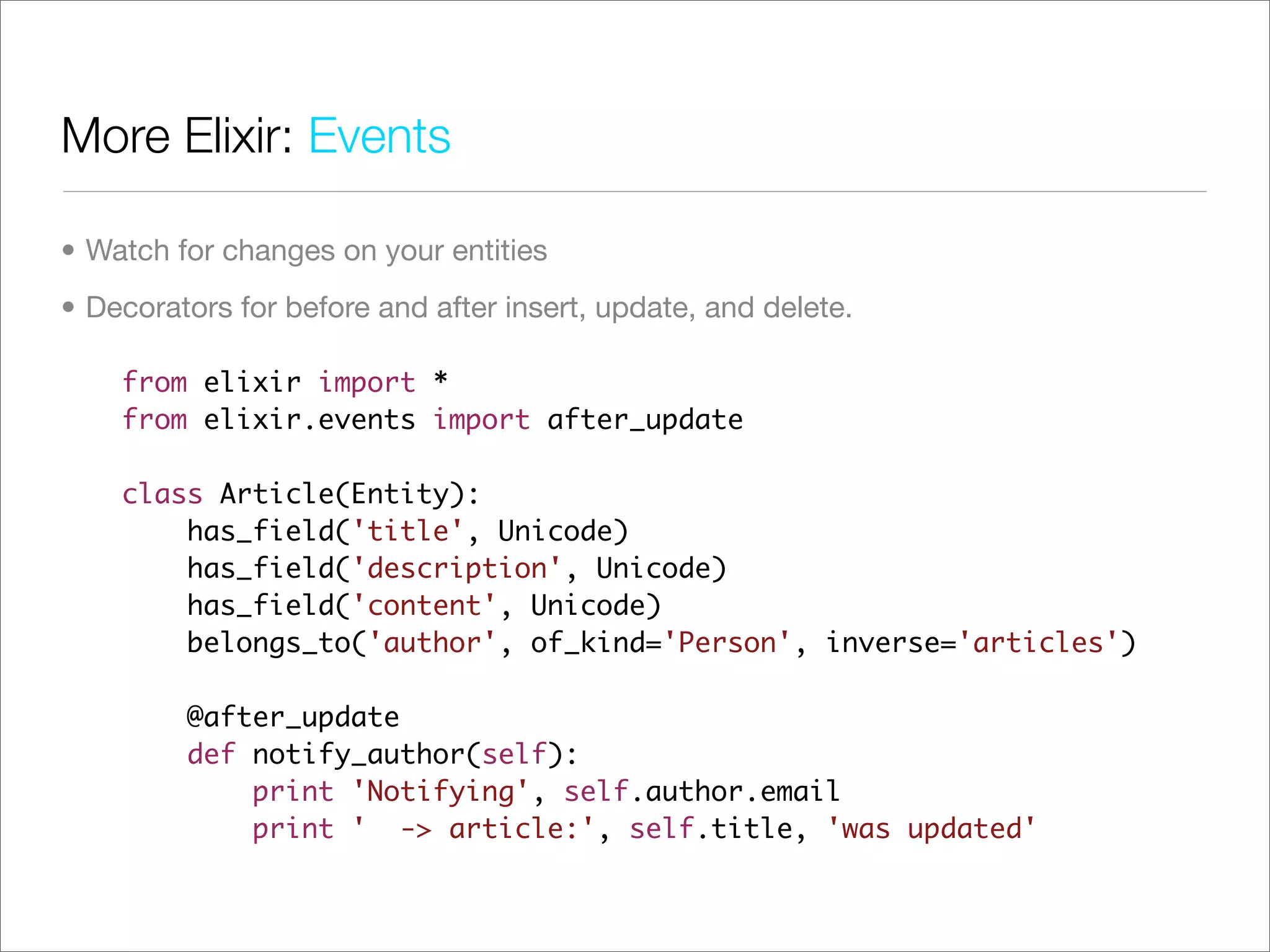
![More Elixir: Encryption
• Automatically encrypts and decrypts fields using Blowfish.
from elixir import *
from elixir.ext.encrypted import acts_as_encrypted
class Person(Entity):
has_field('name', Unicode)
has_field('email', Unicode)
has_field('password', Unicode)
has_many('articles', of_kind='Article', inverse='author')
acts_as_encrypted(for_fields=['password'], with_secret='abc123')](https://image.slidesharecdn.com/slidespythonelixir-121110092237-phpapp02/75/Slides-python-elixir-29-2048.jpg)
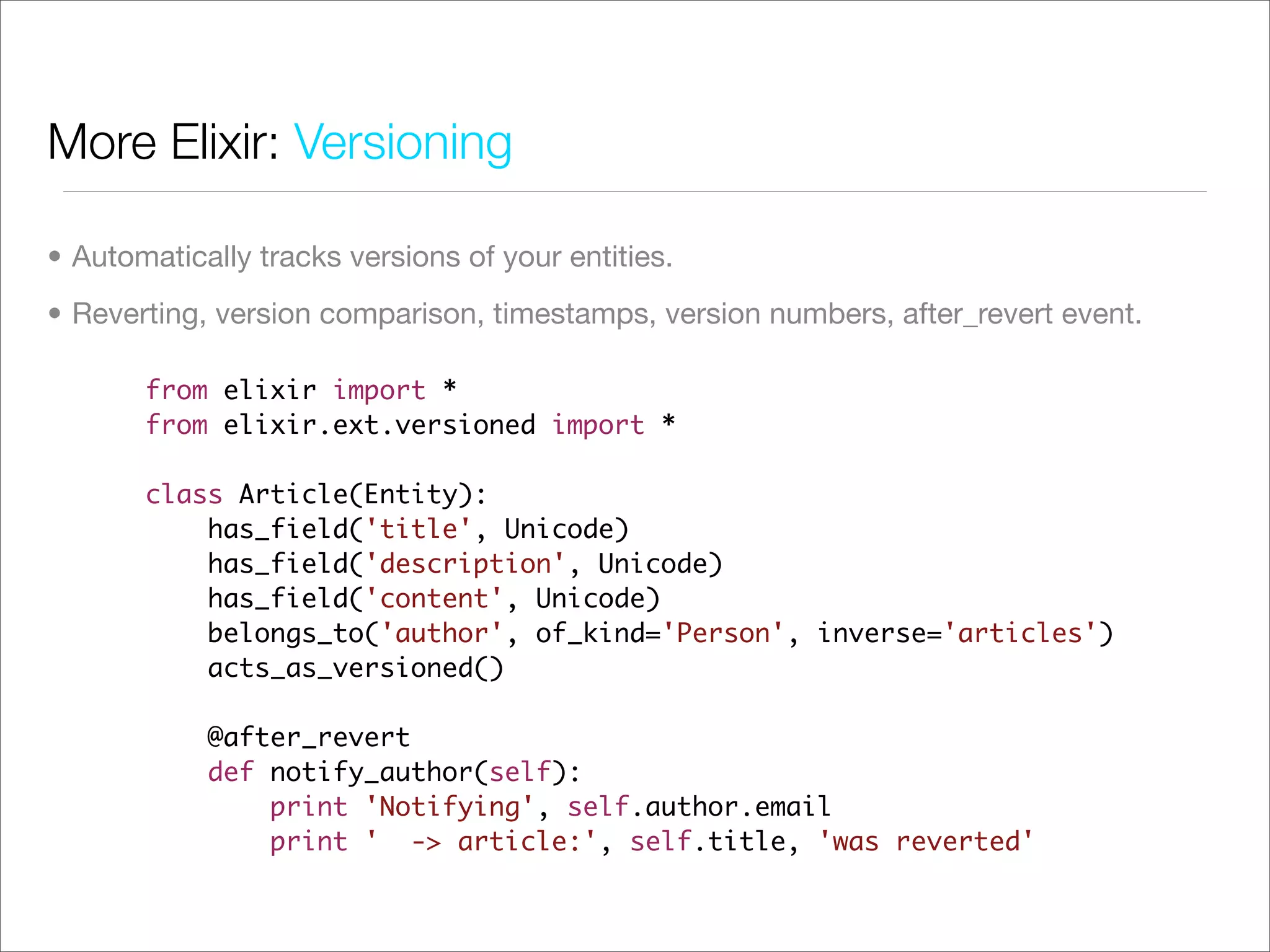
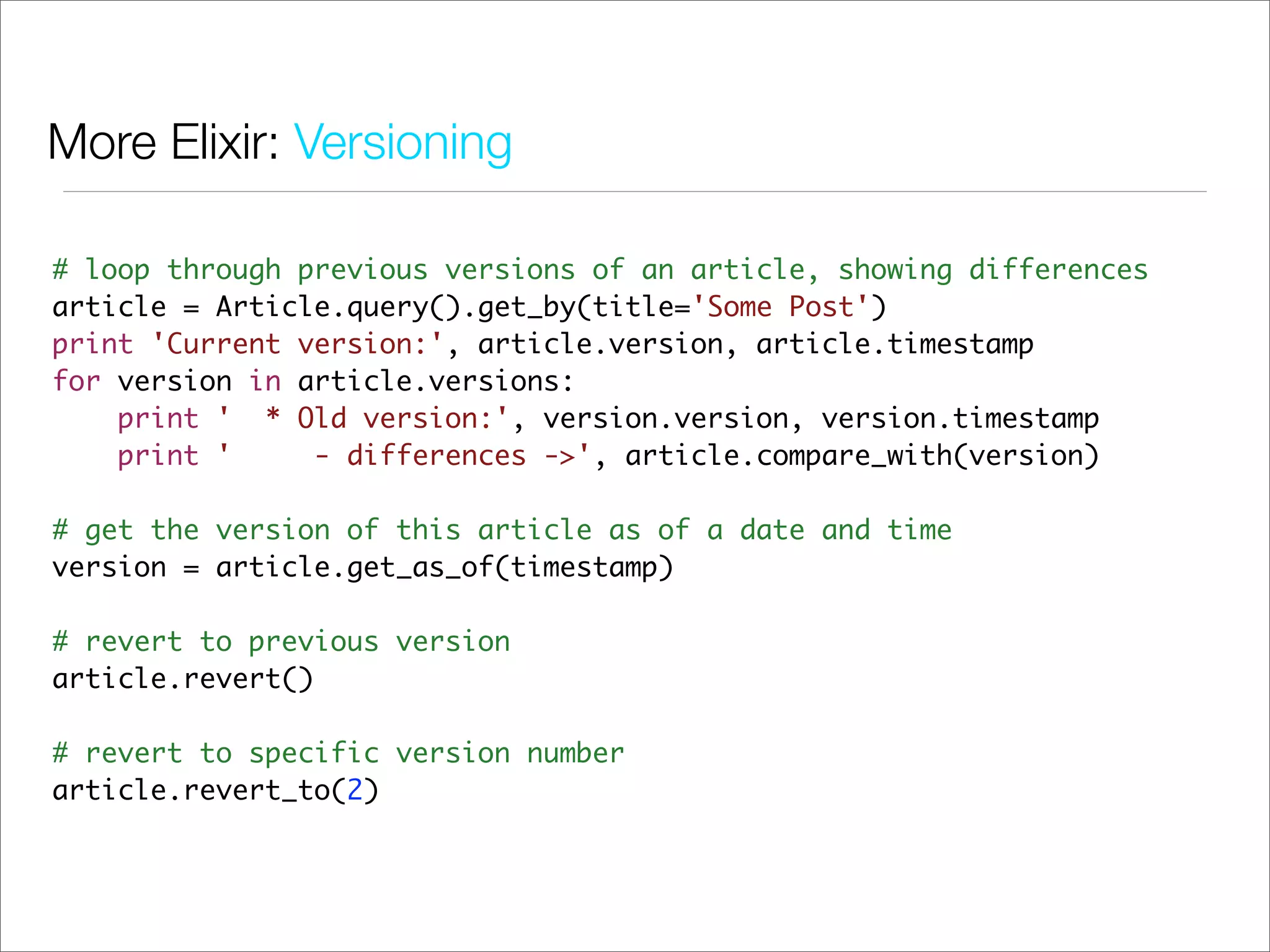
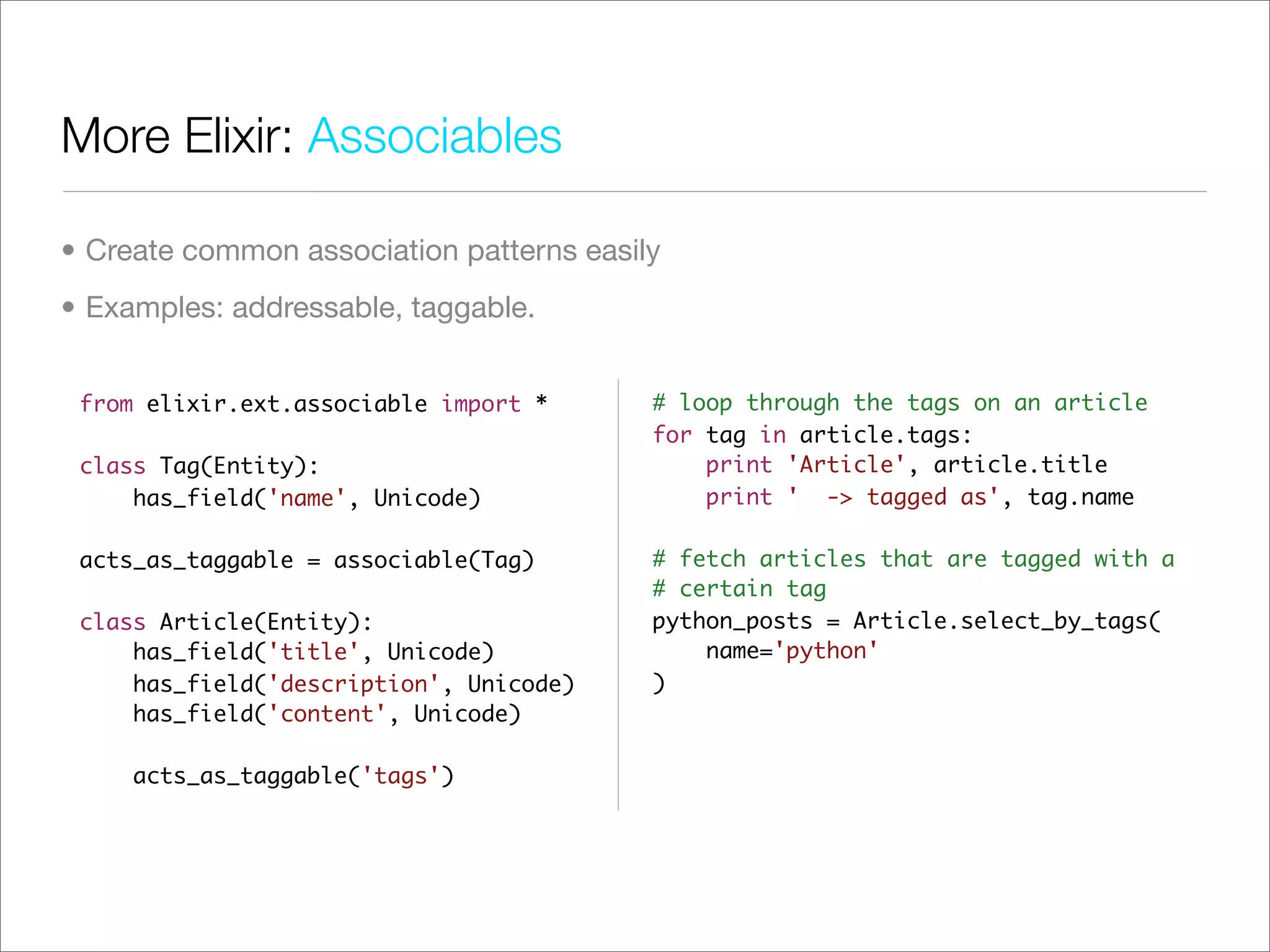
![More Elixir: Lower Level Operations
• Elixir is built on SQLAlchemy.
• You can always drop down to table objects.
results = select(
[Person.c.email, Article.c.title],
and_(
Person.c.name == 'Jonathan',
Person.c.id==Article.c.author_id
)
).execute()
person_rows = Person.table.select().execute()](https://image.slidesharecdn.com/slidespythonelixir-121110092237-phpapp02/75/Slides-python-elixir-33-2048.jpg)
